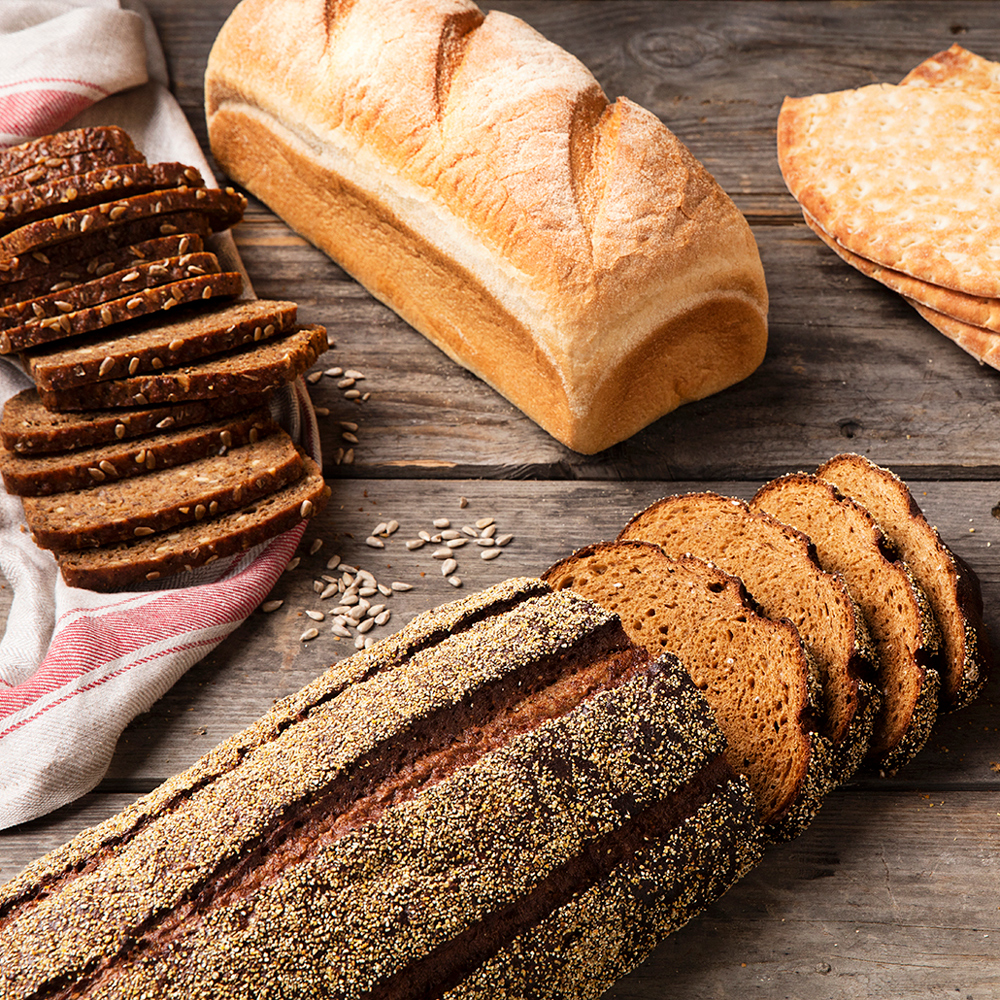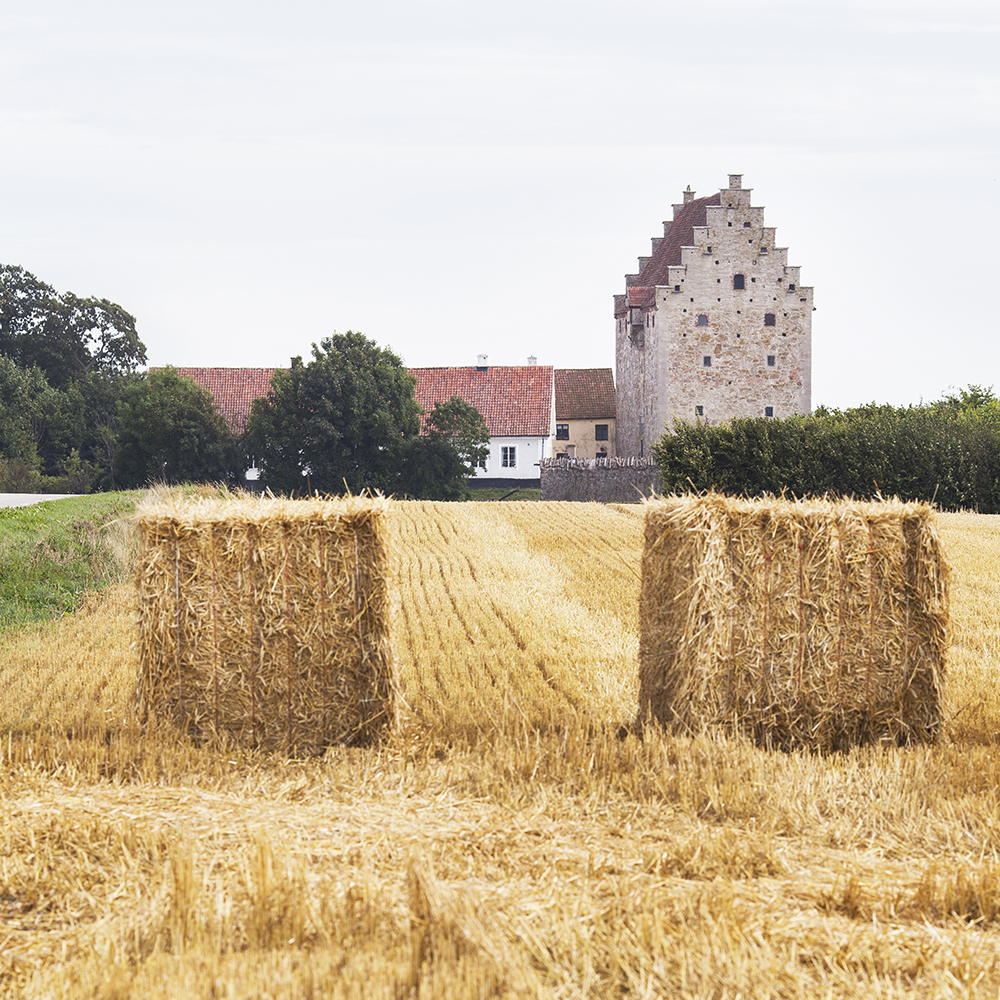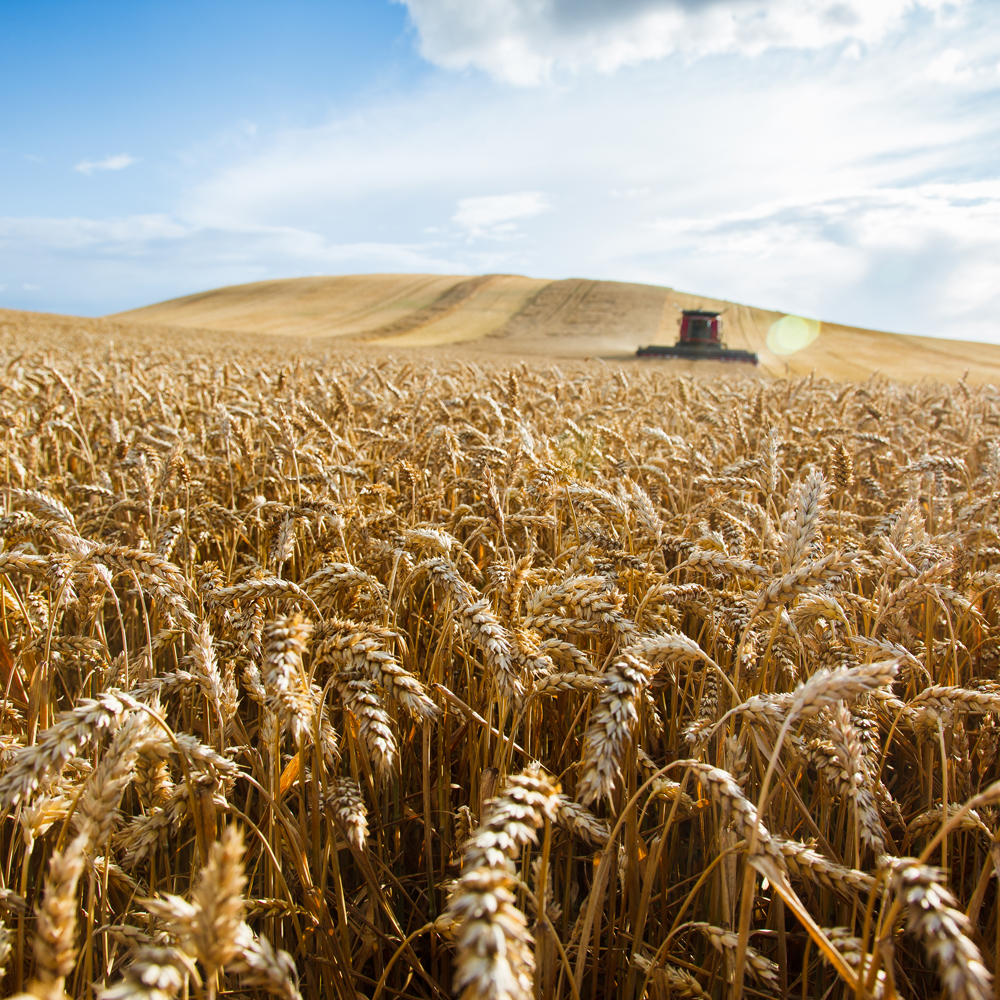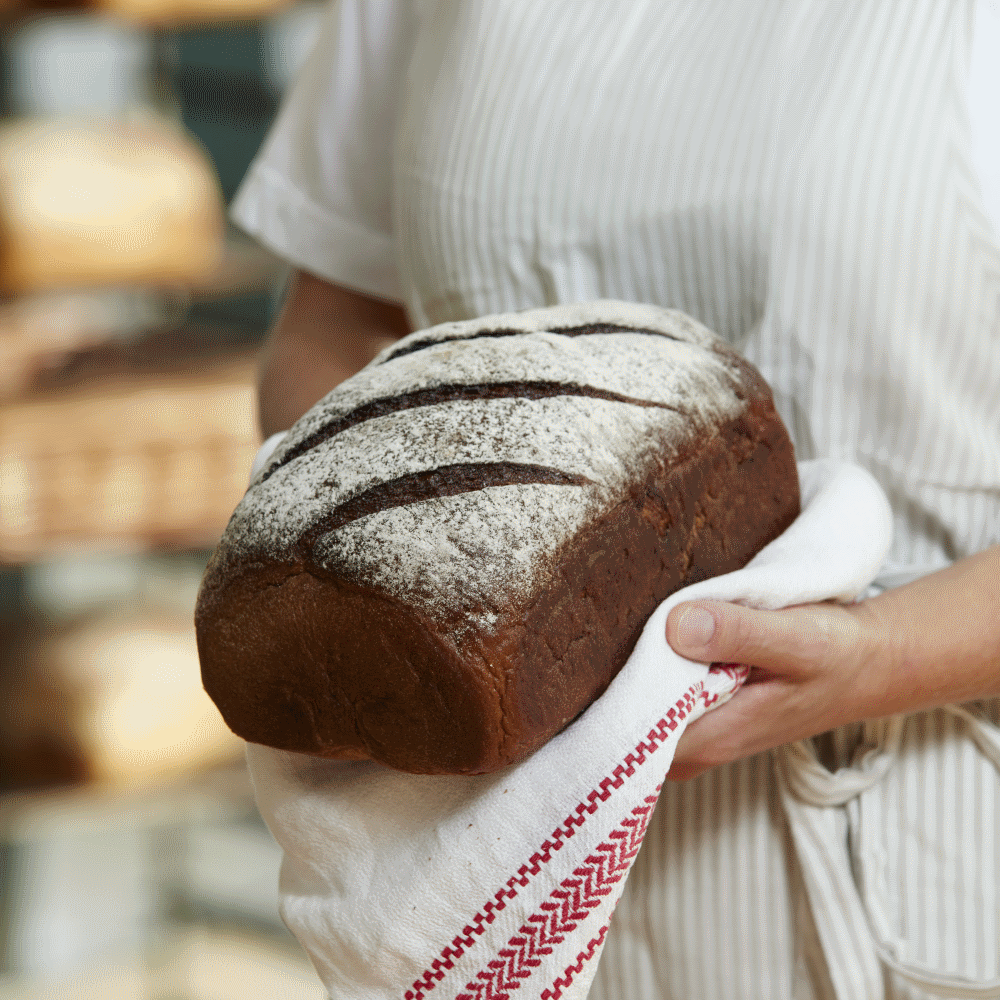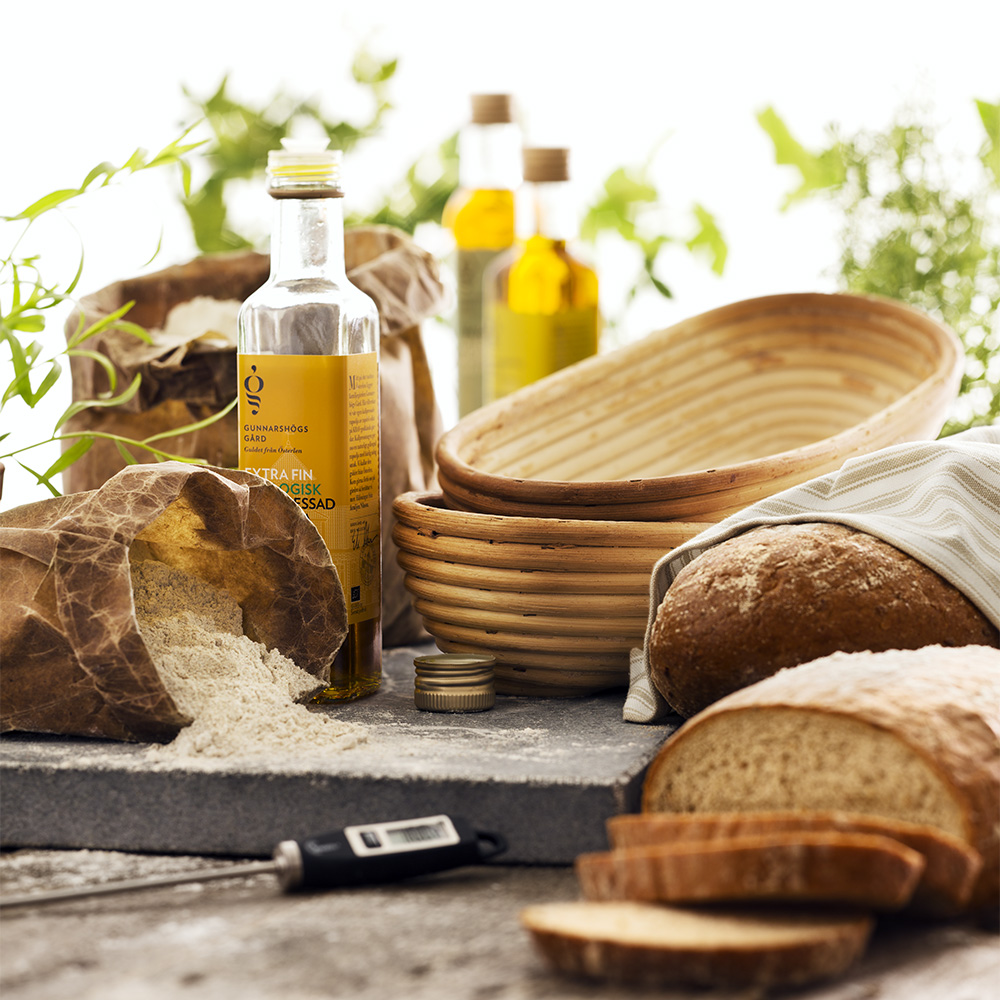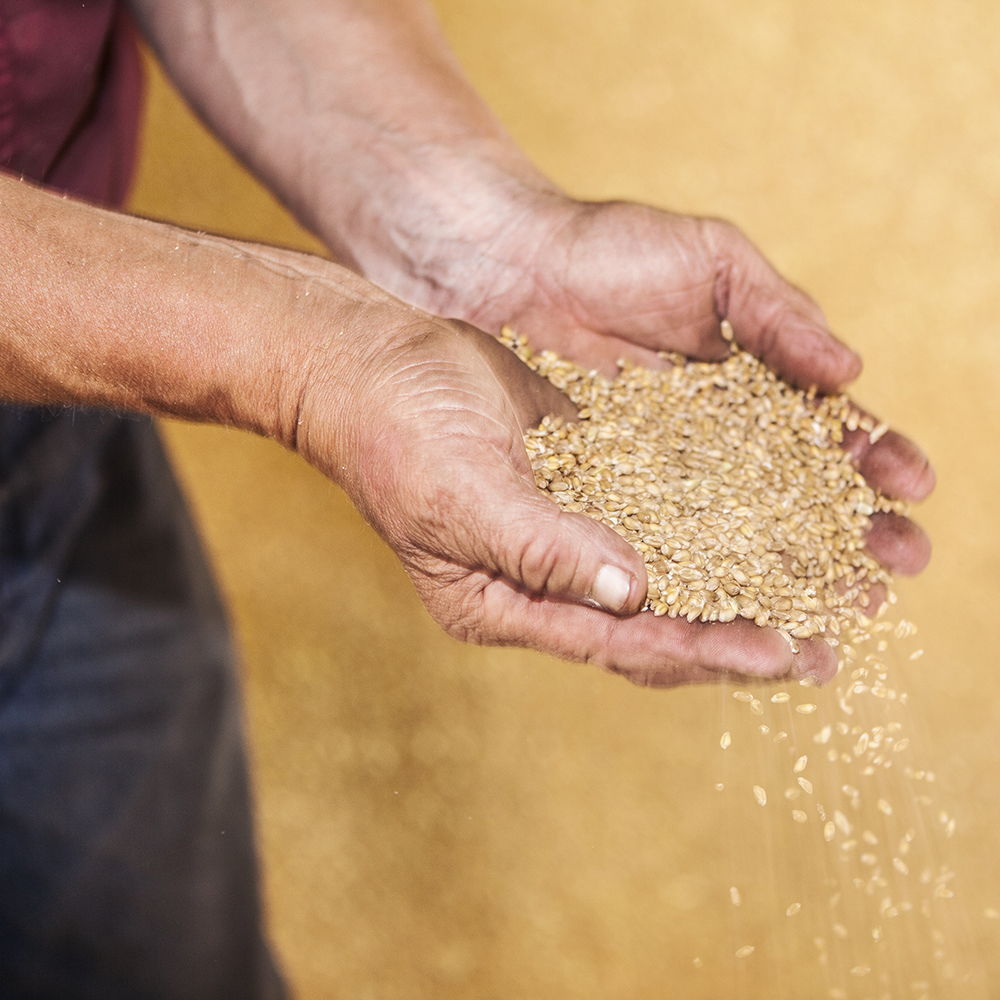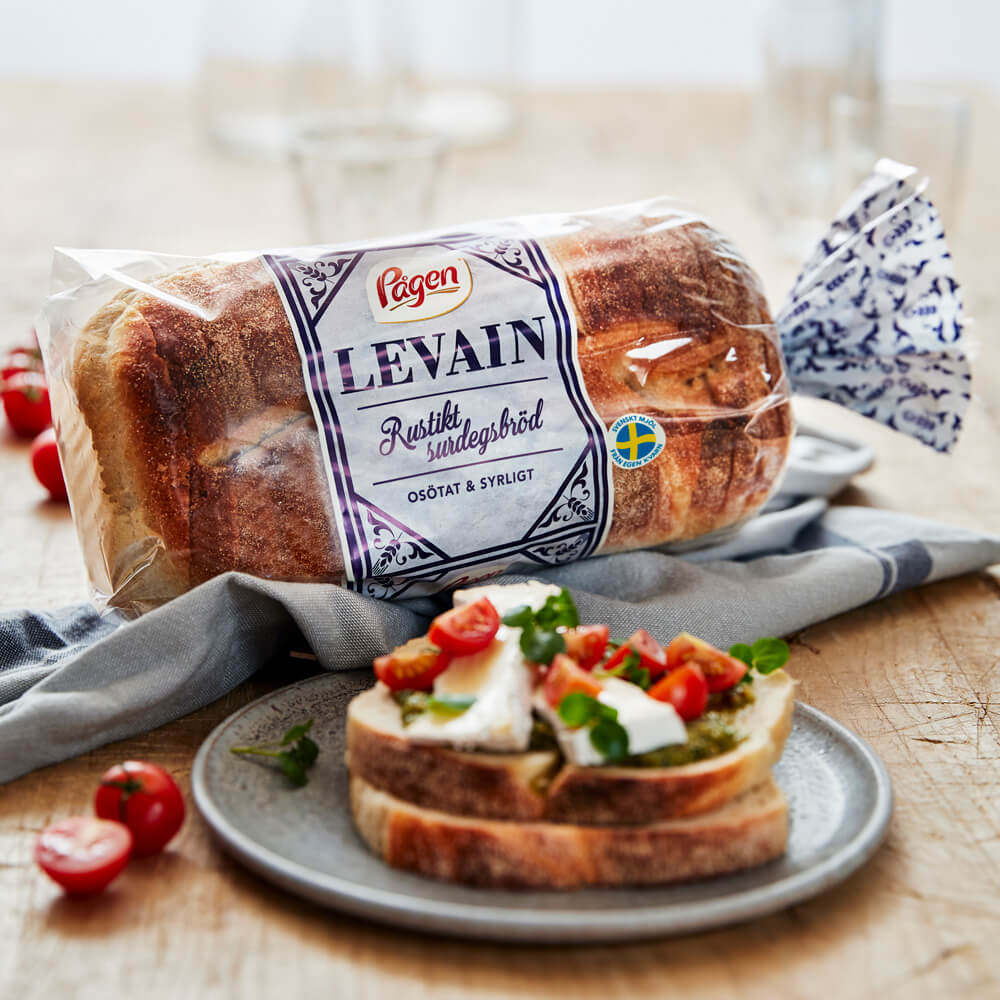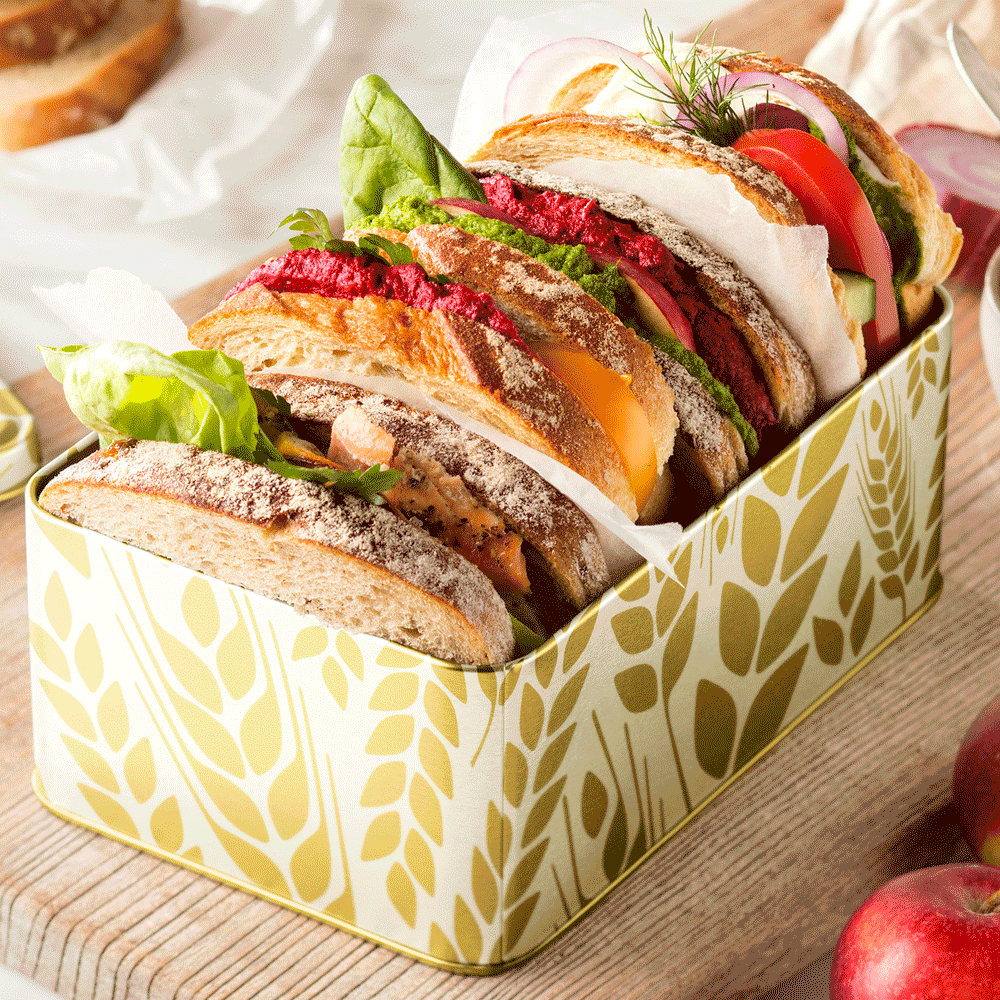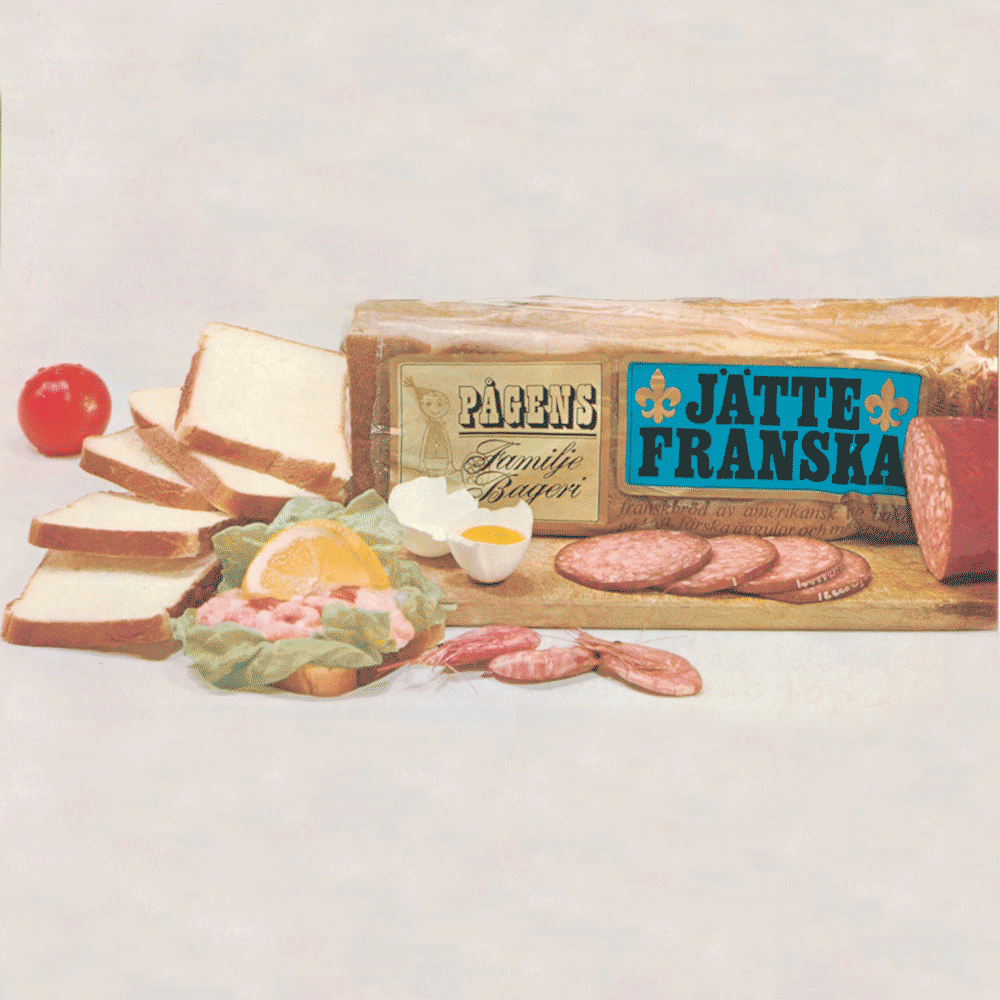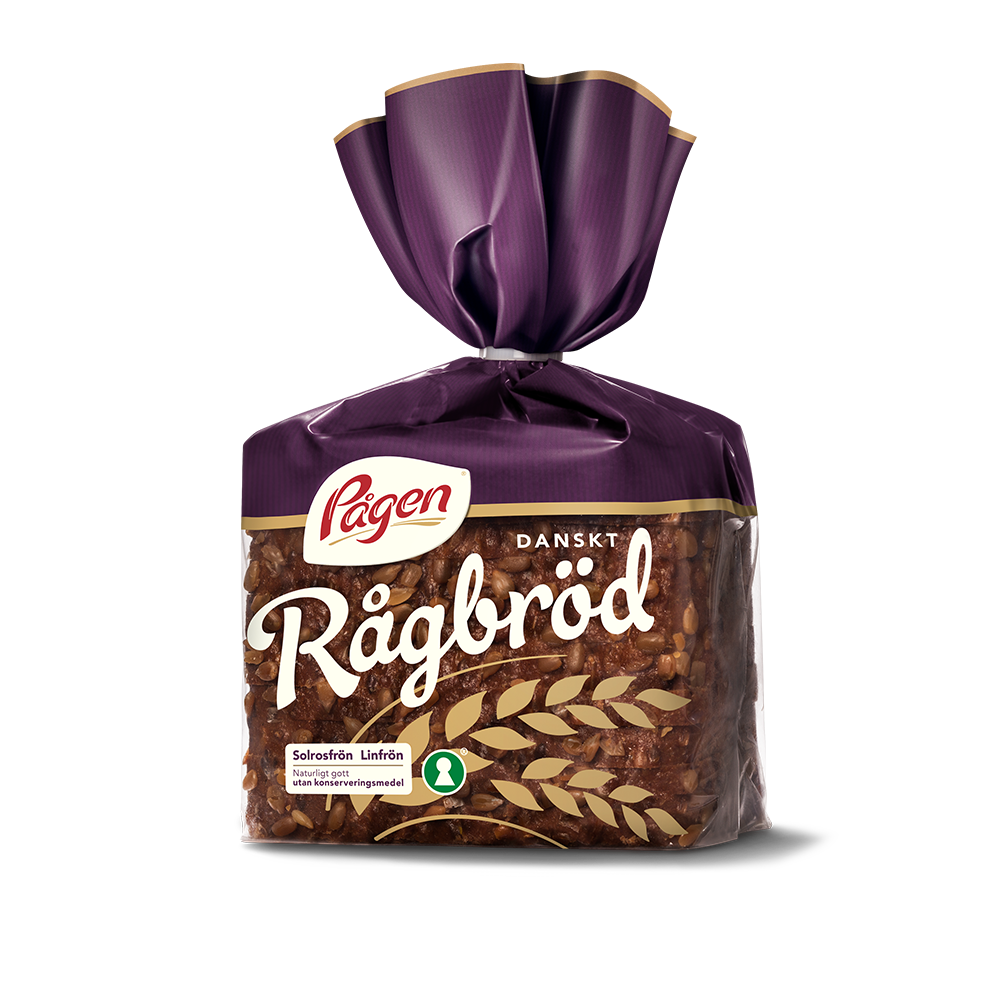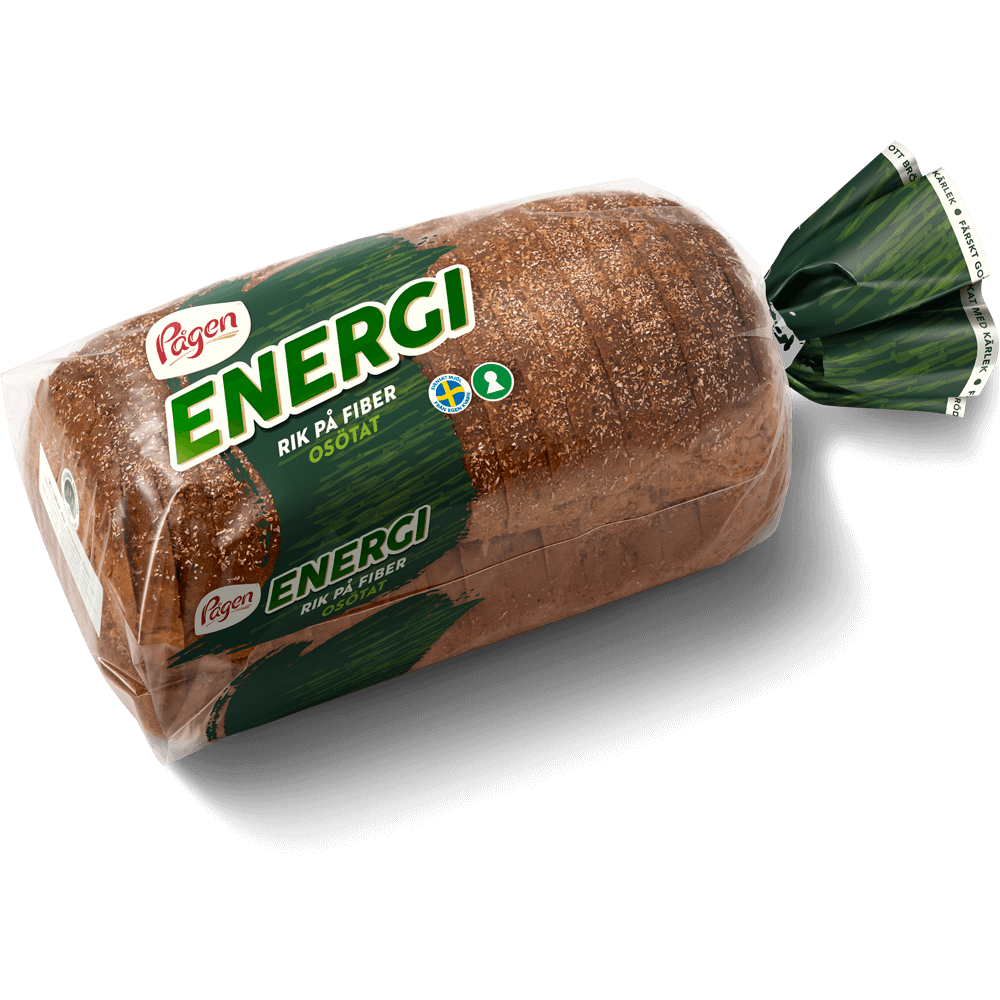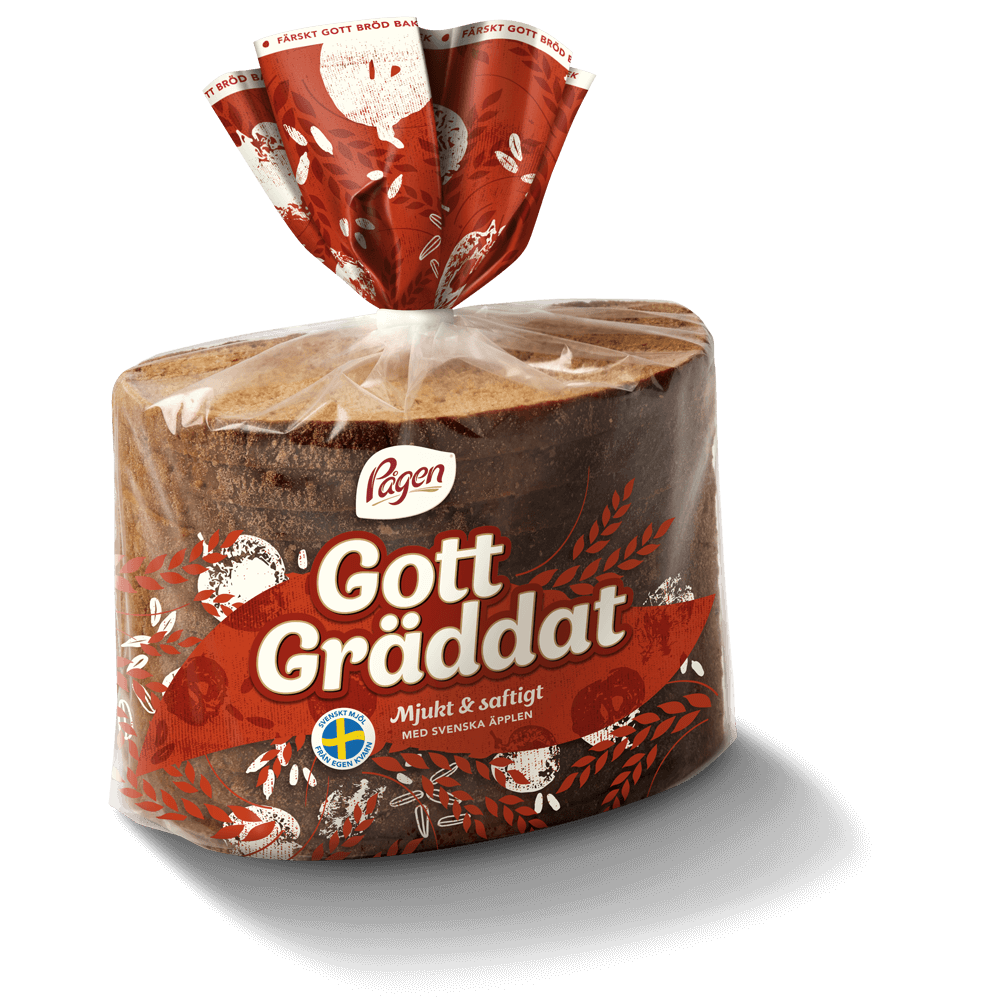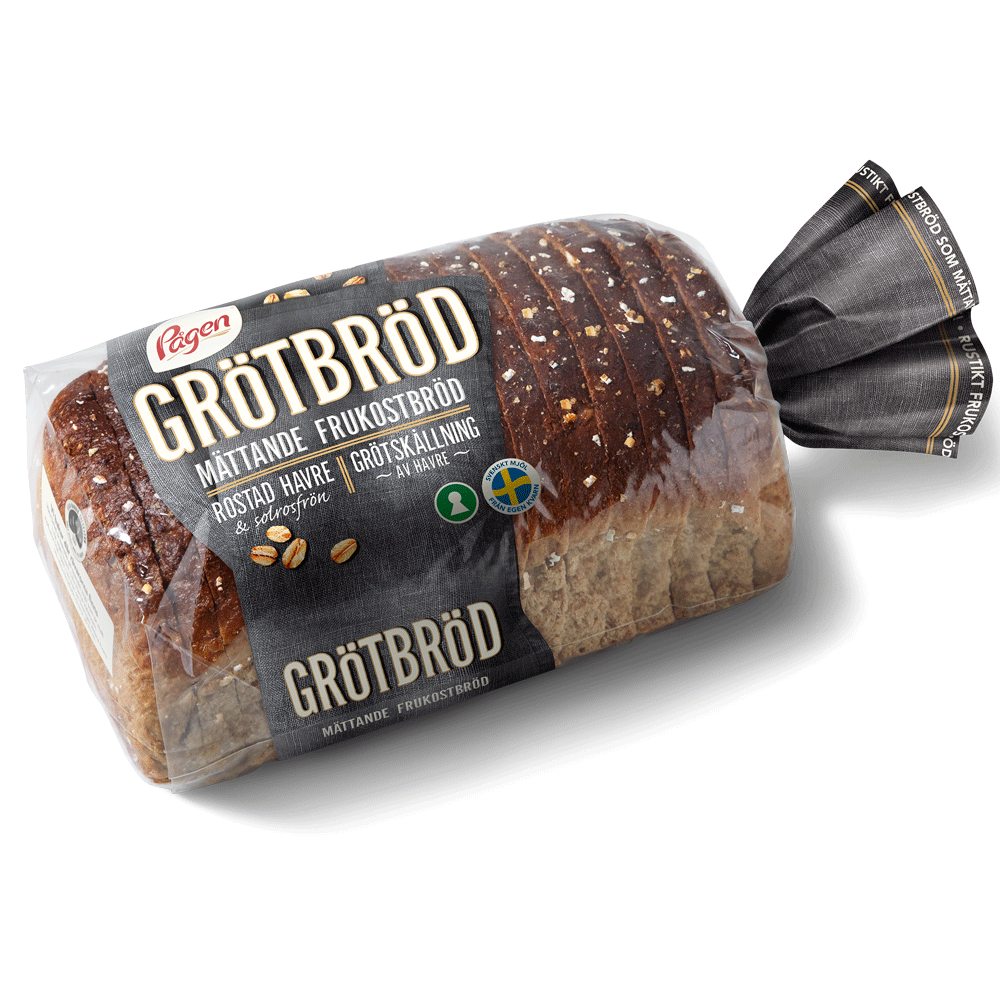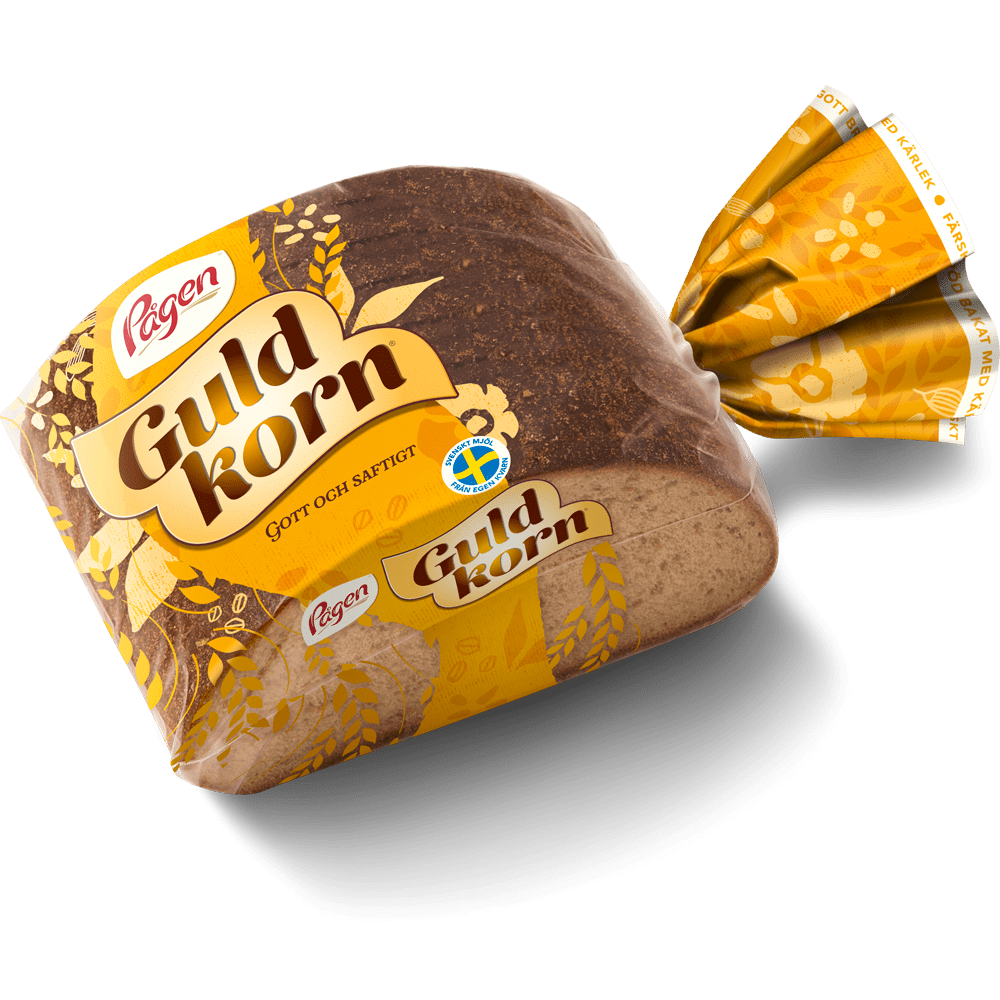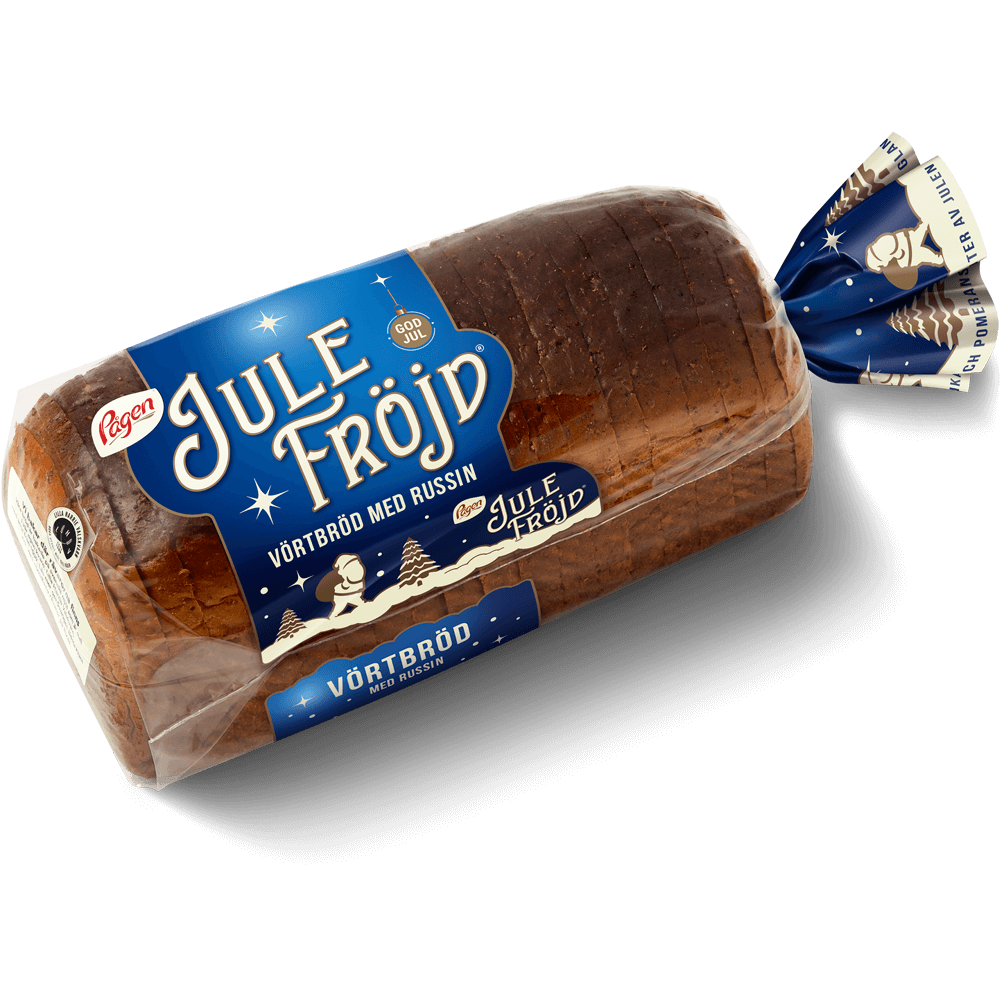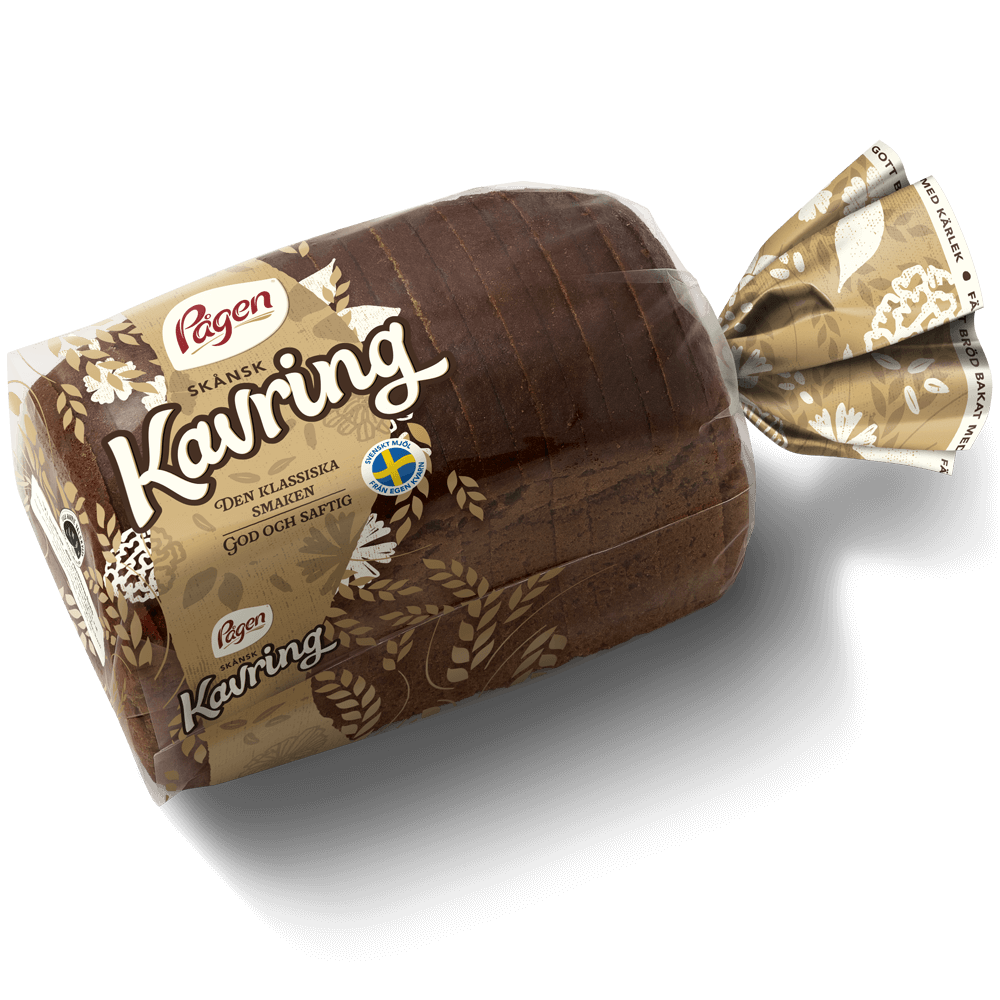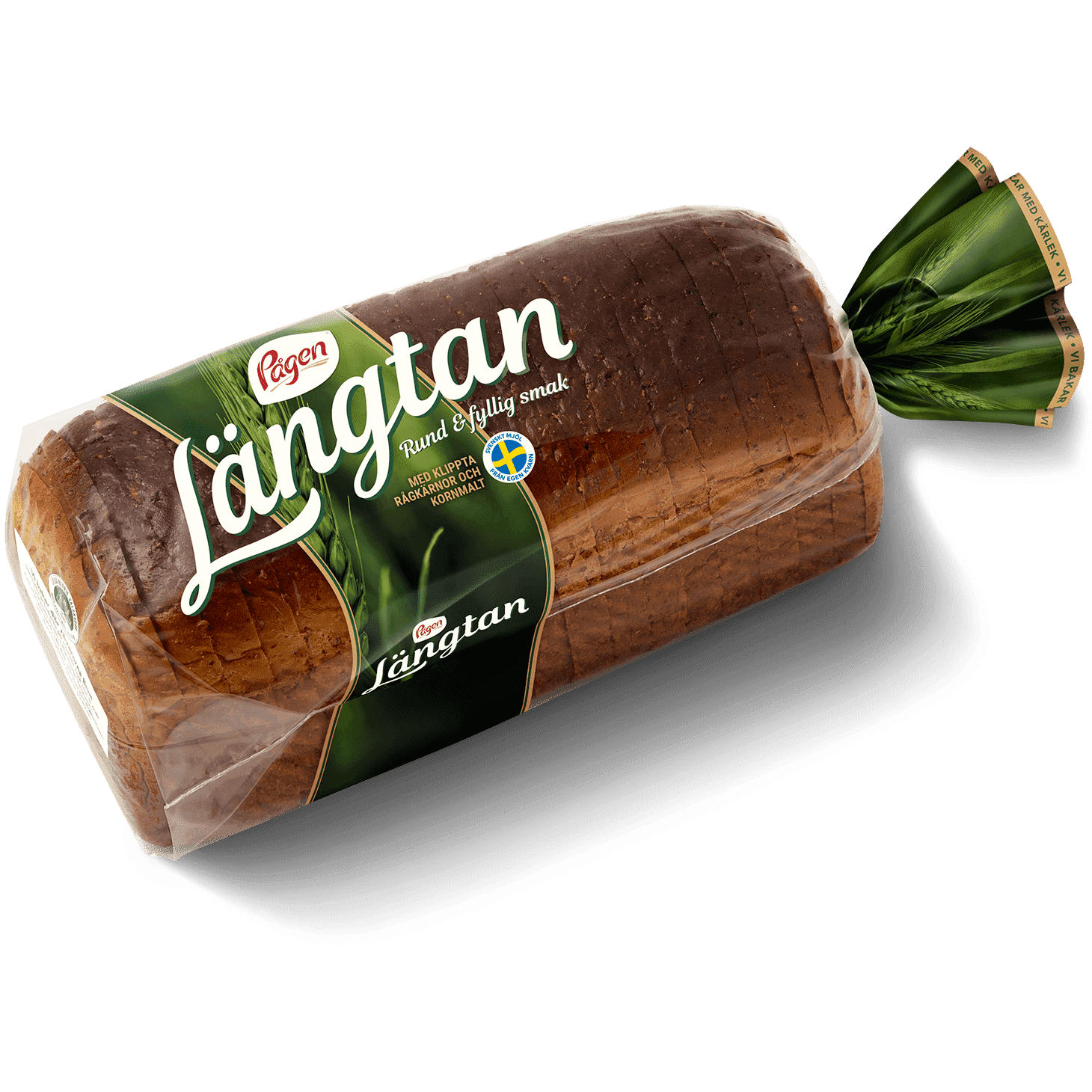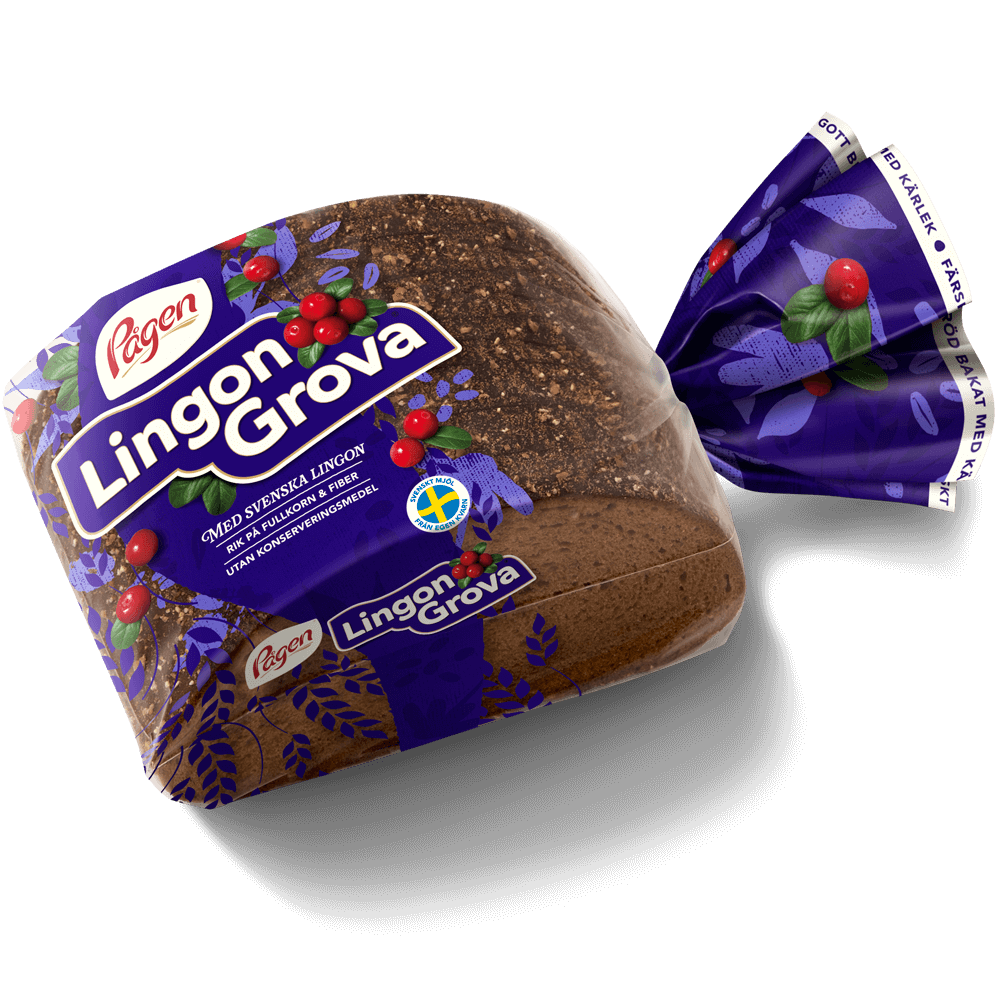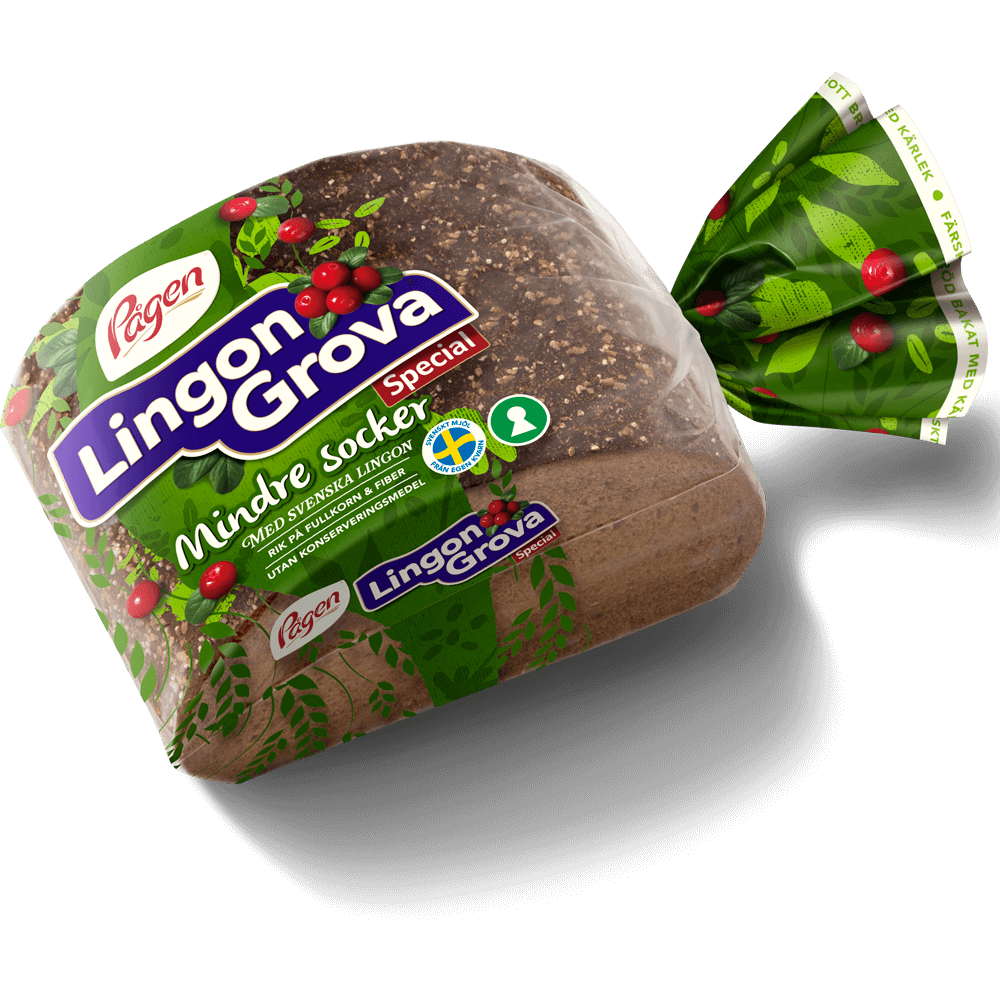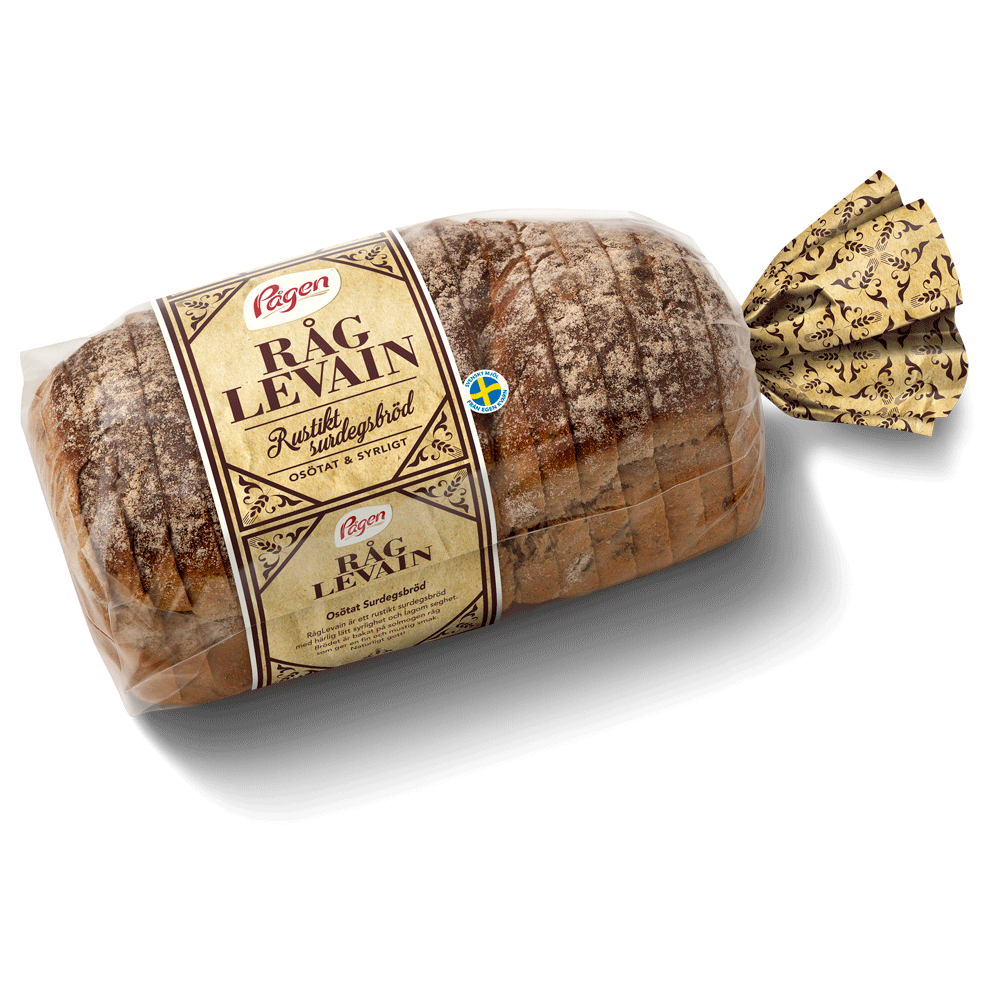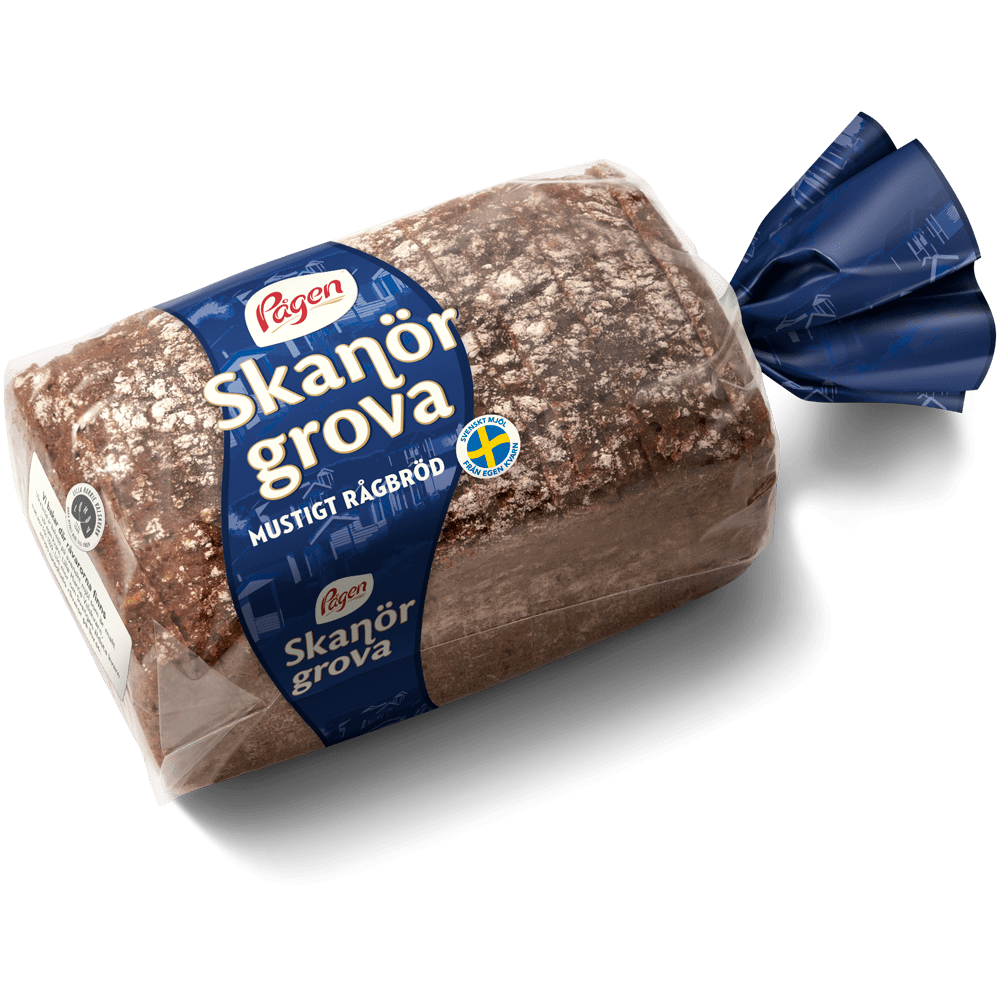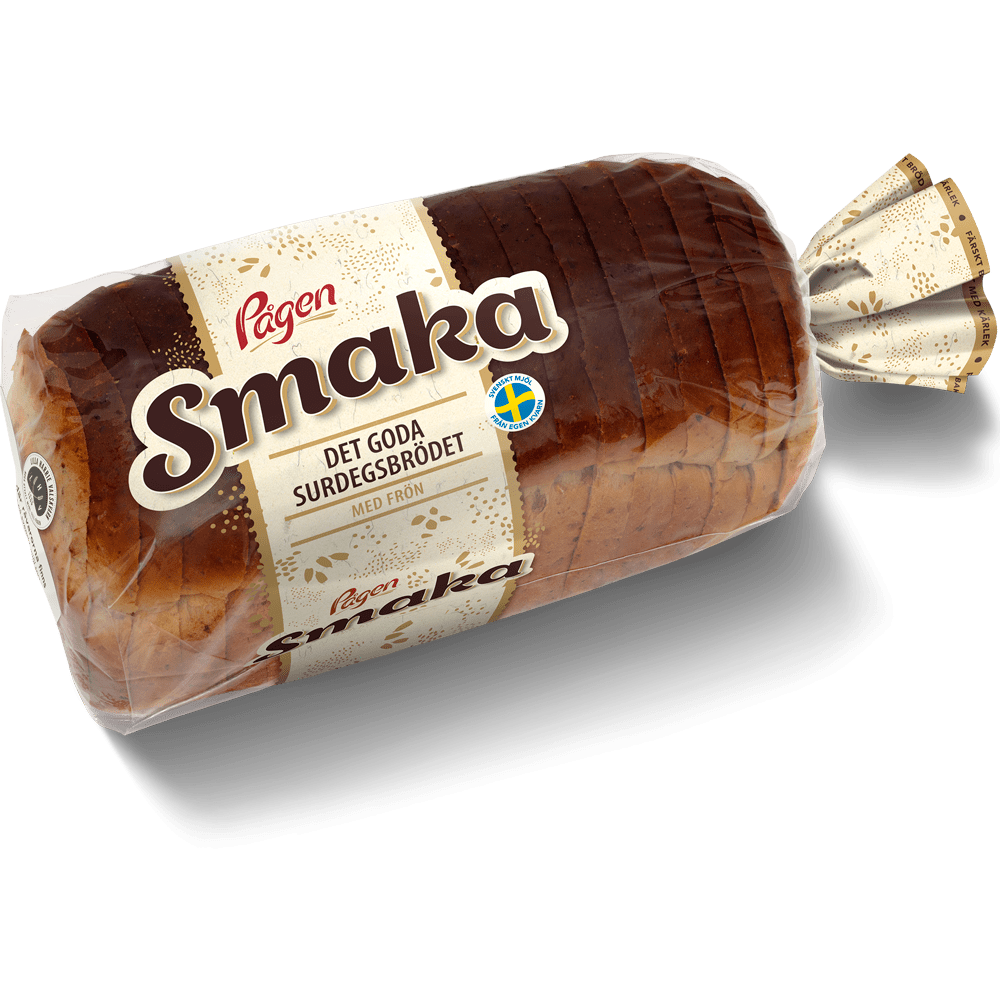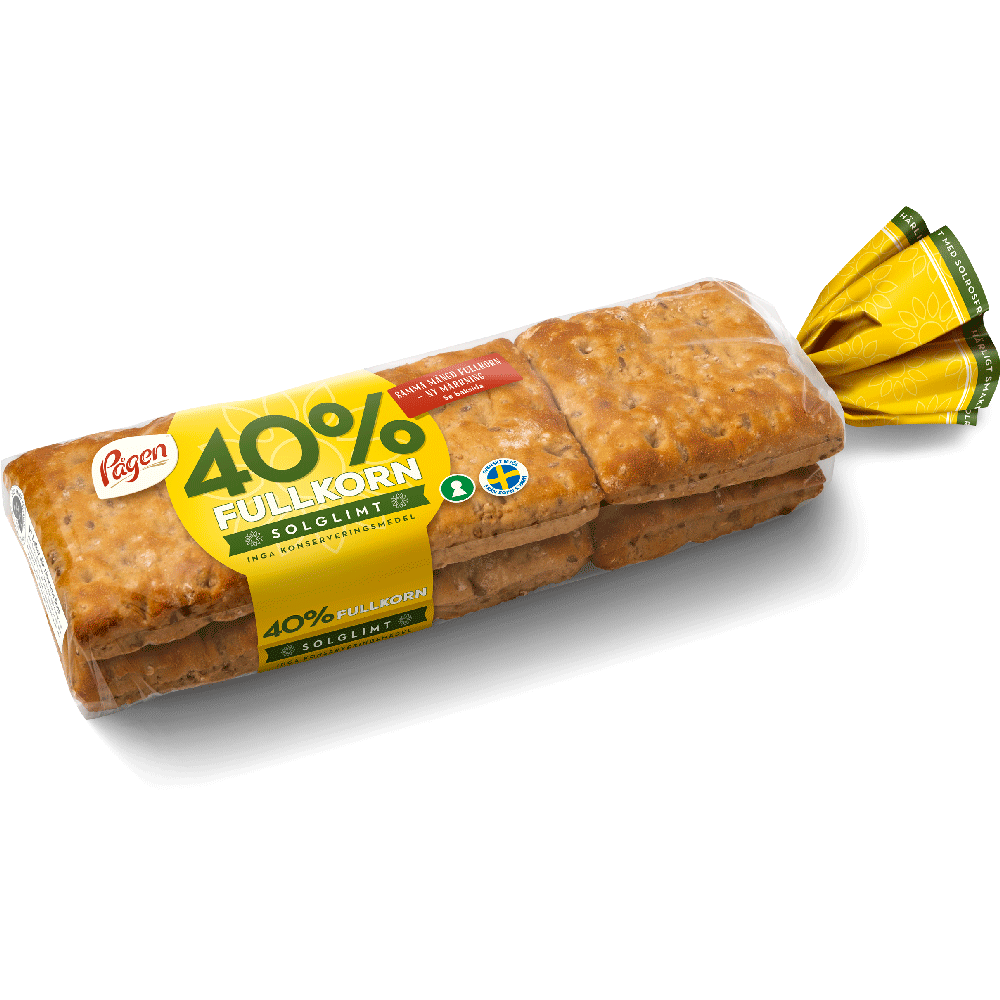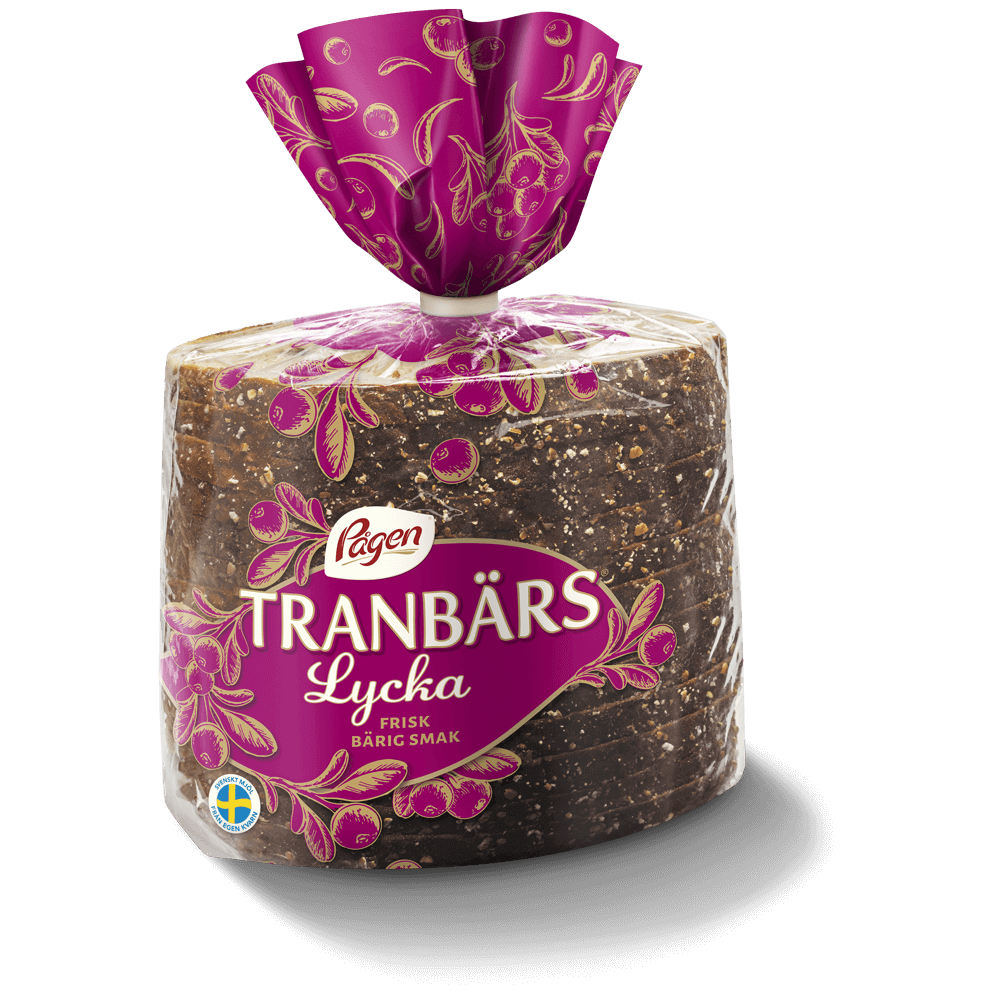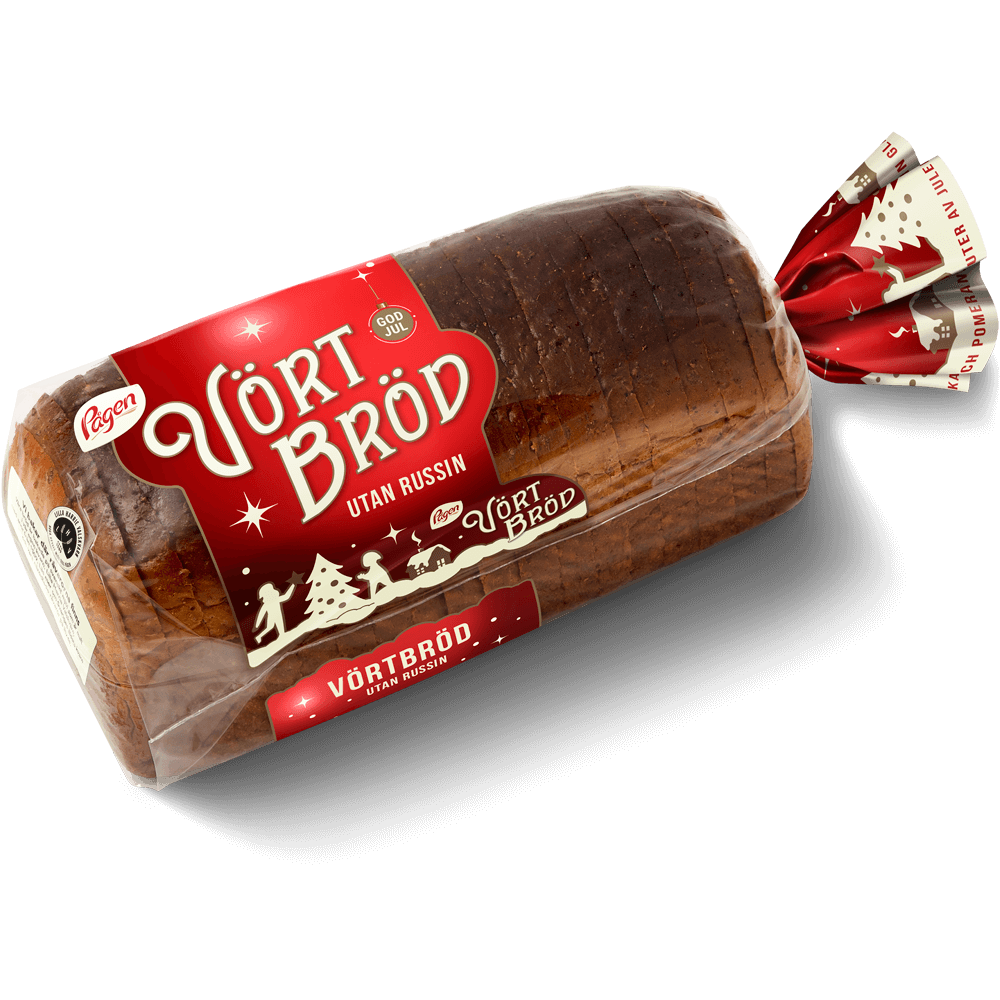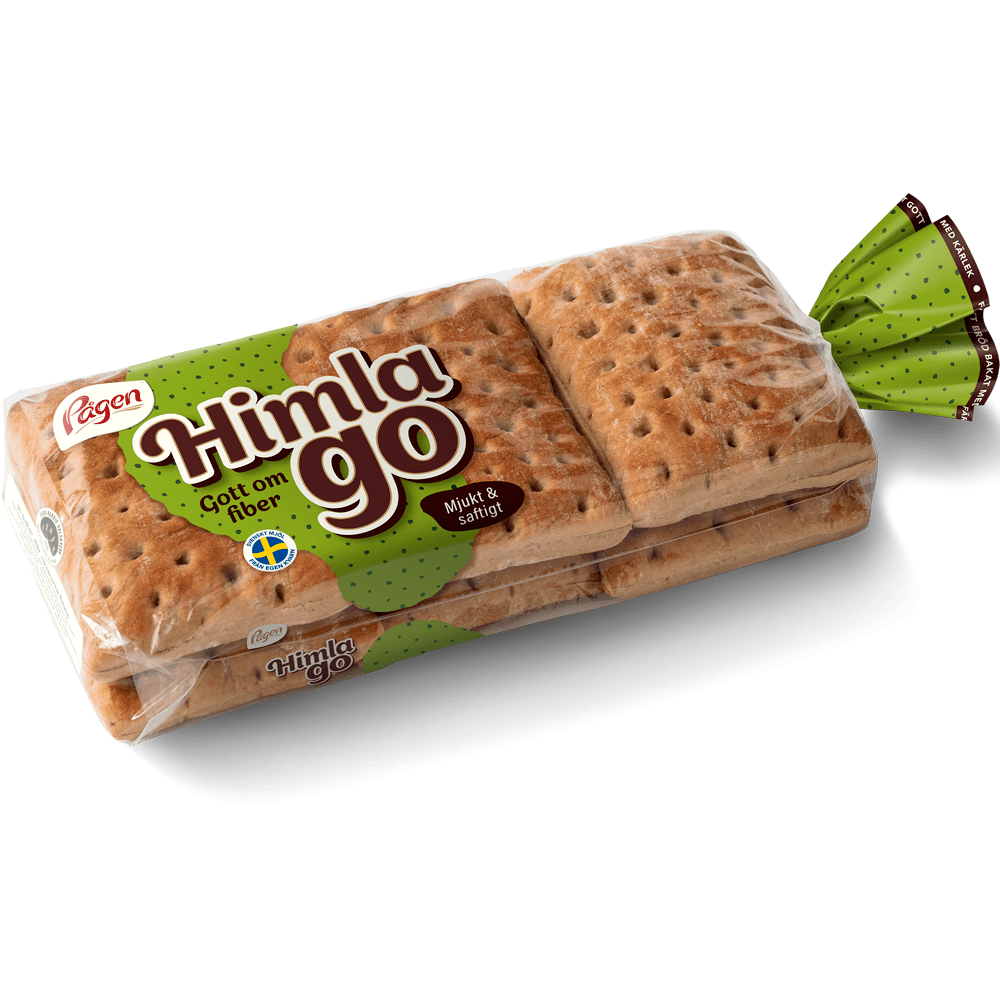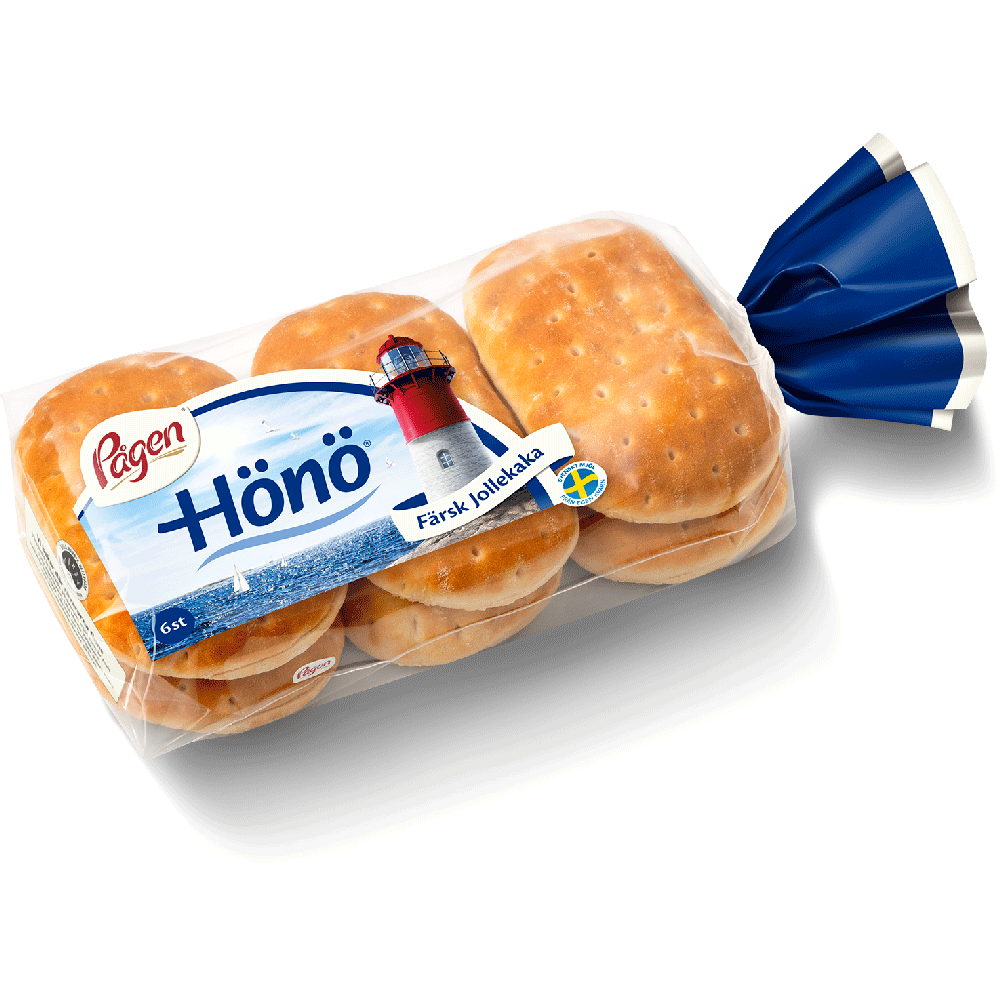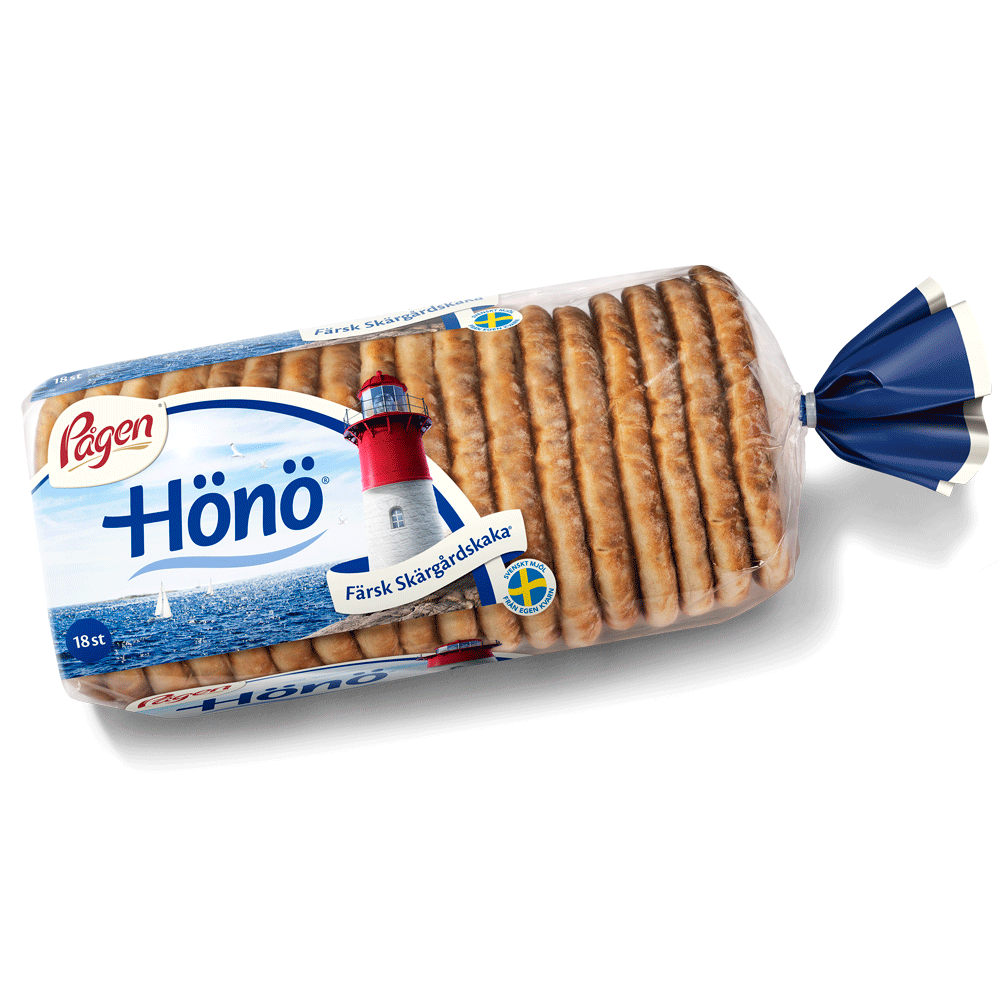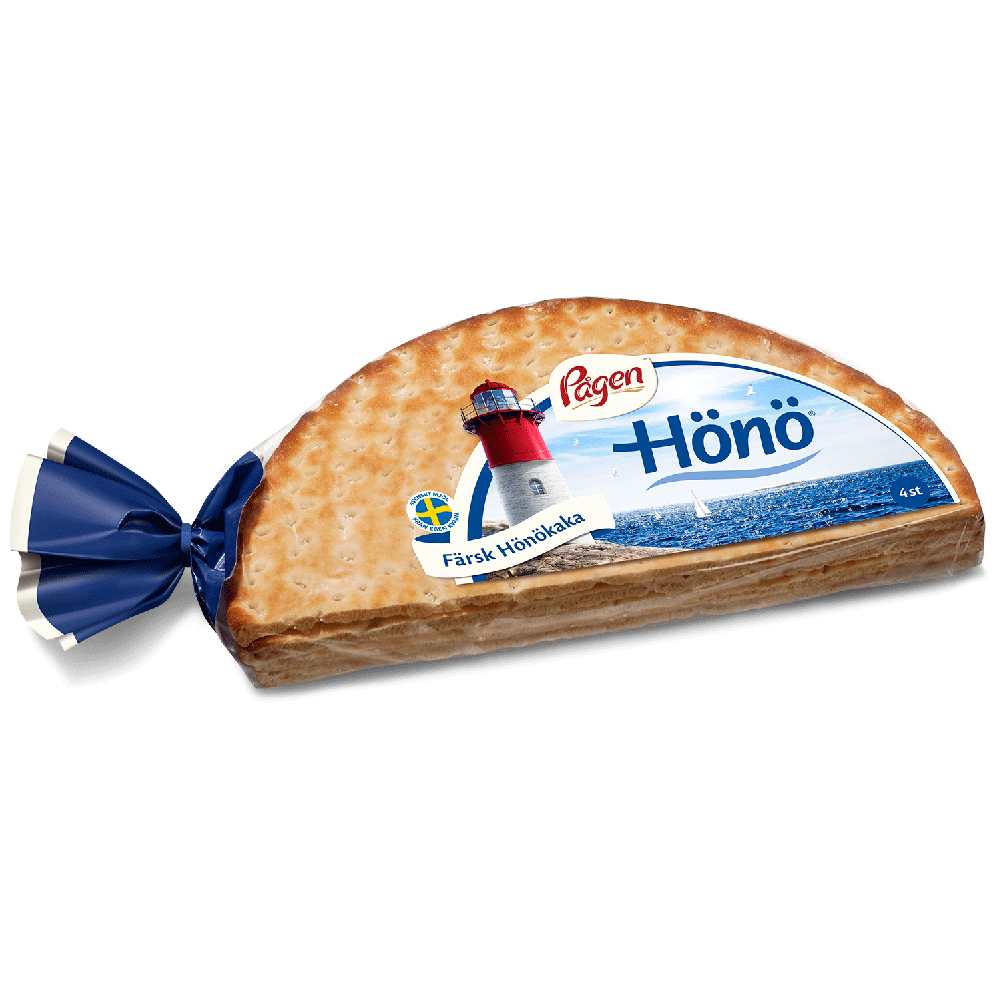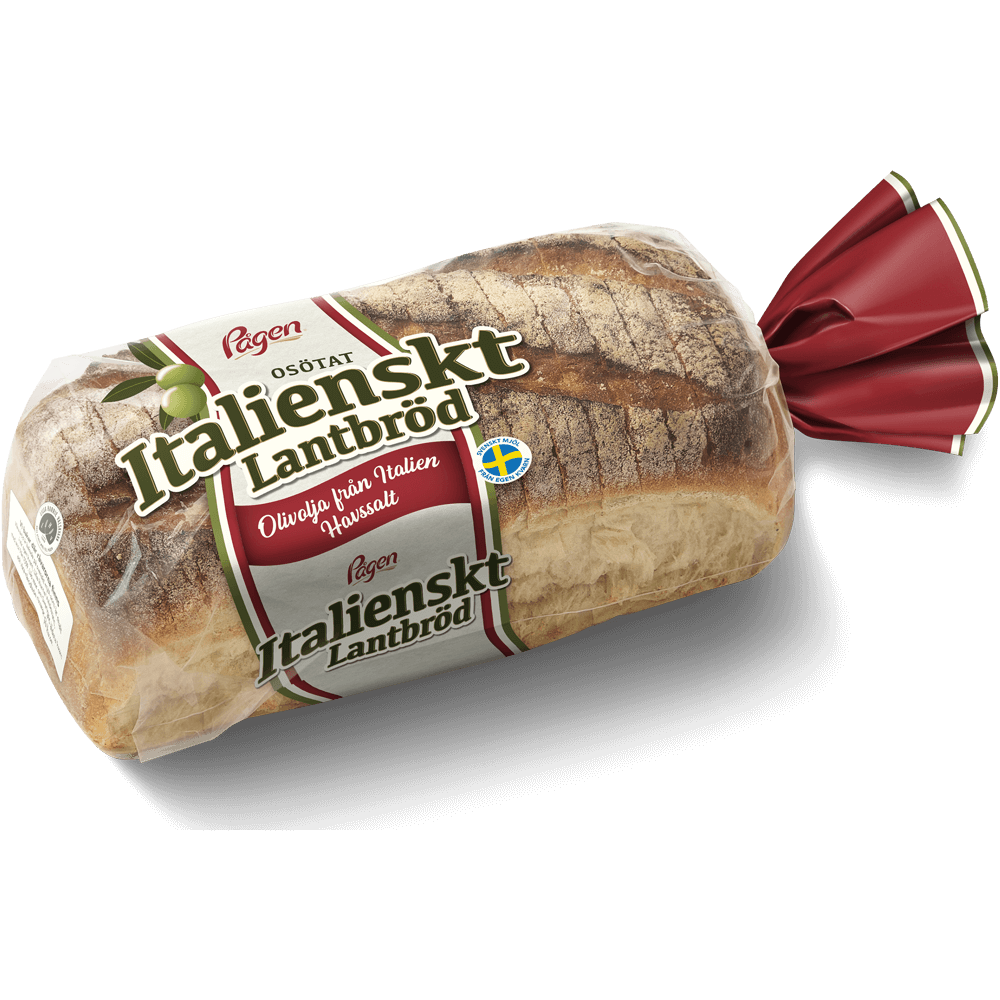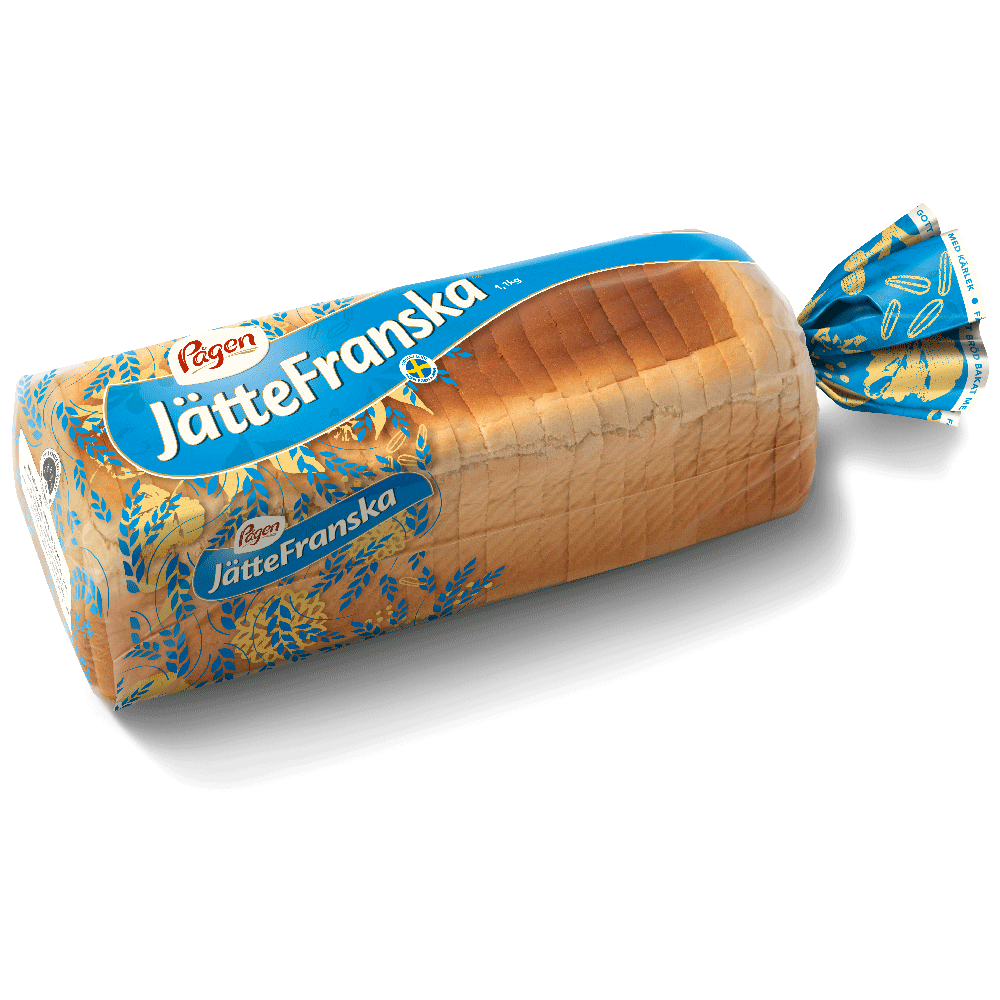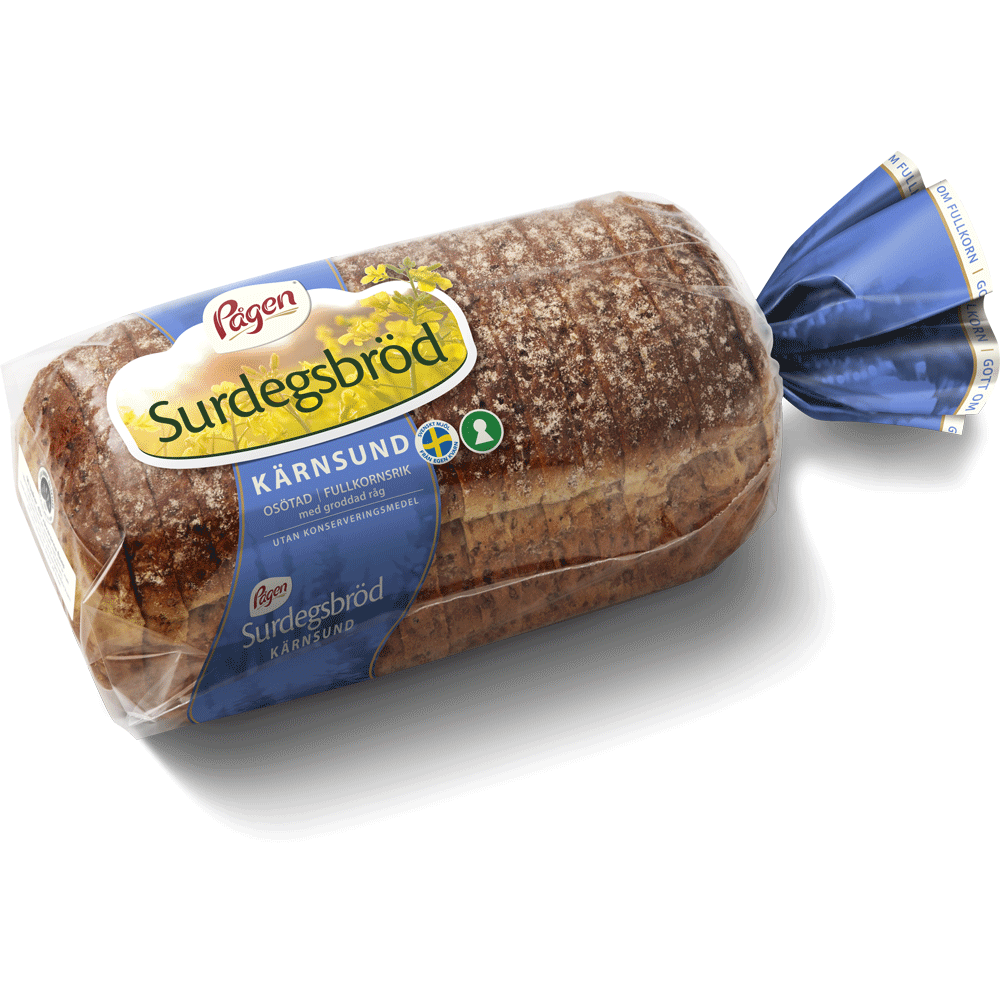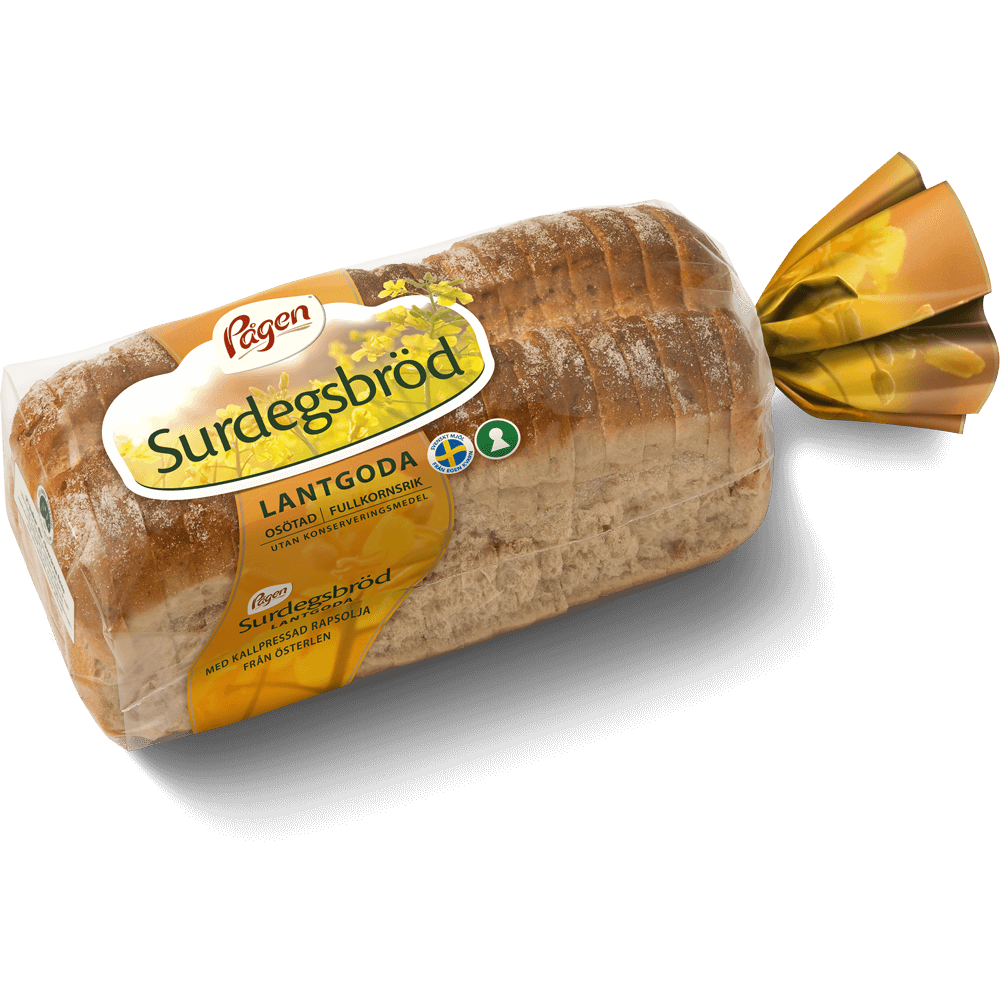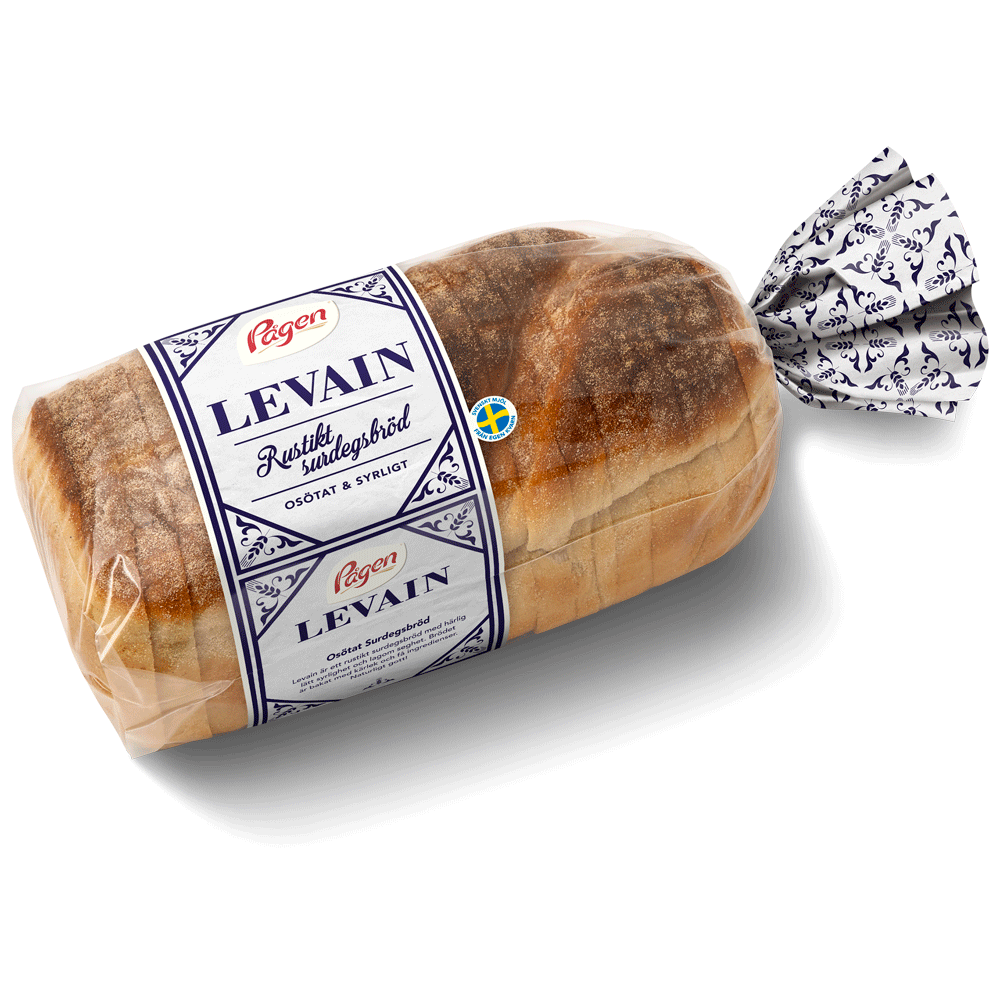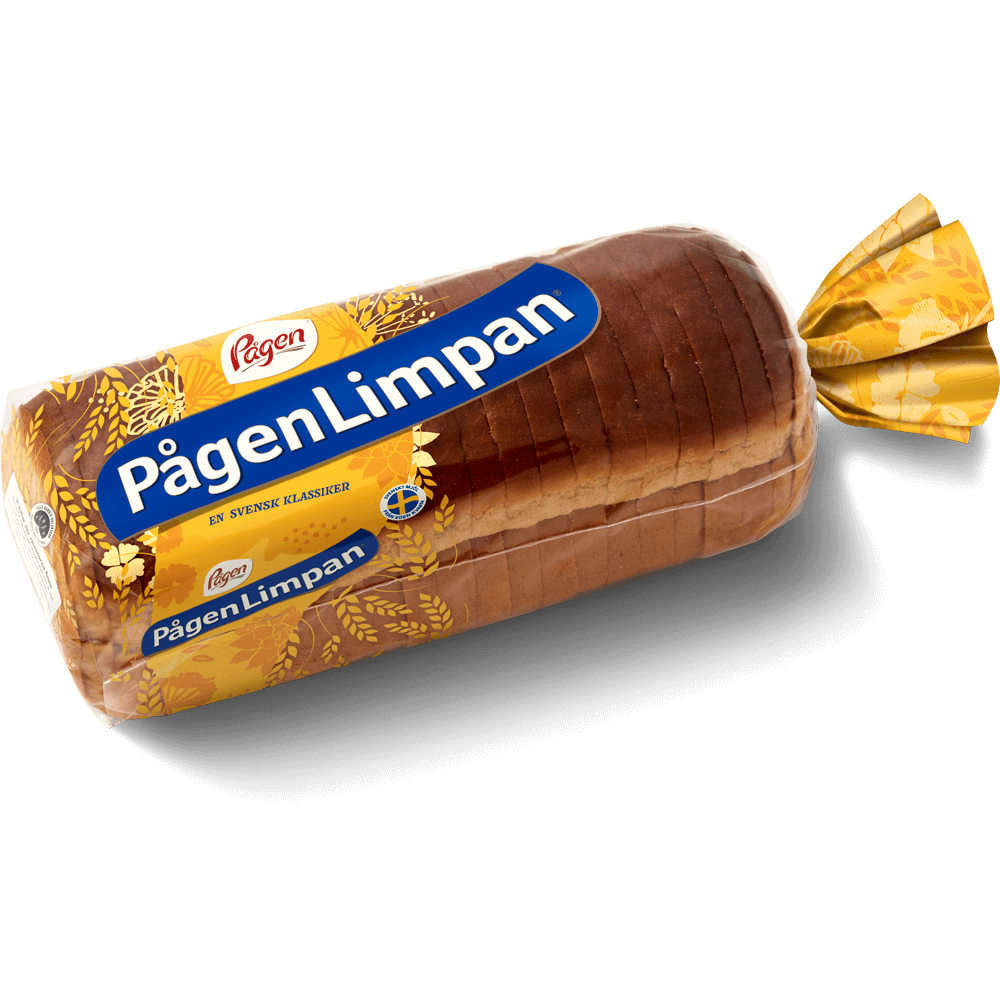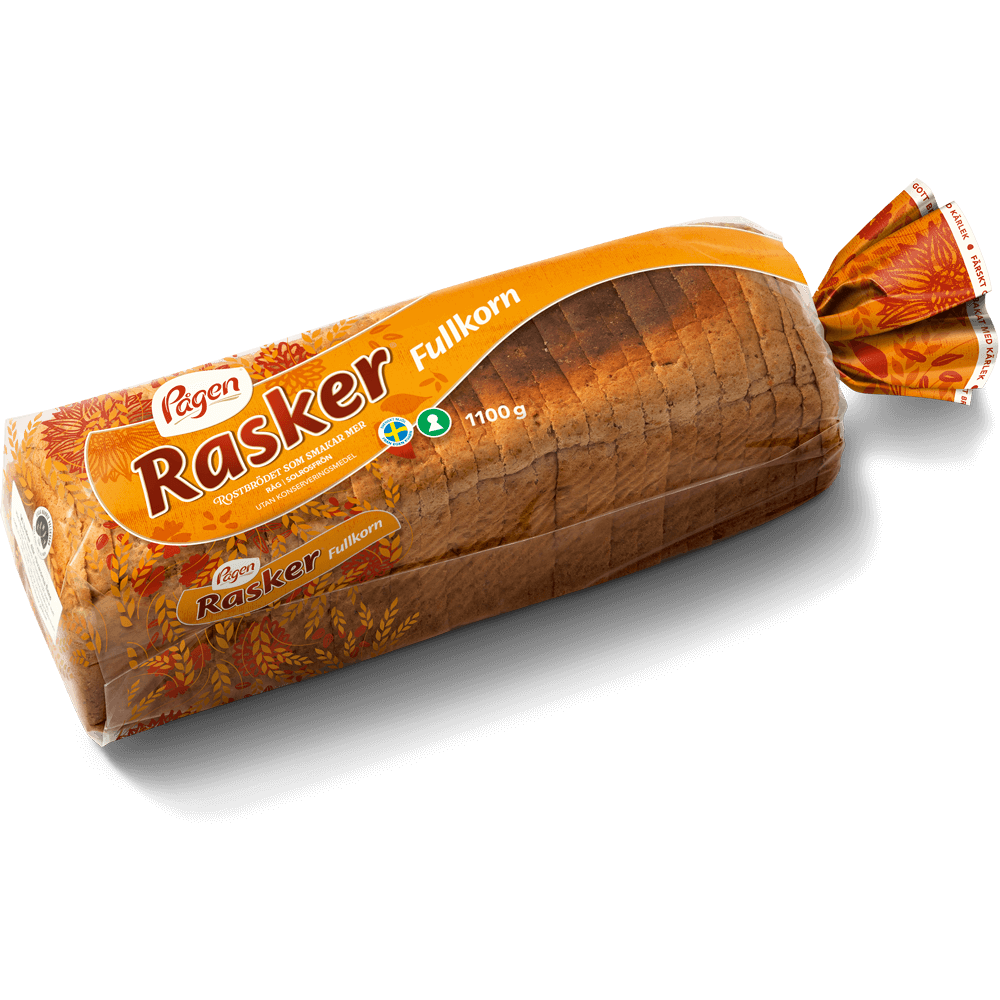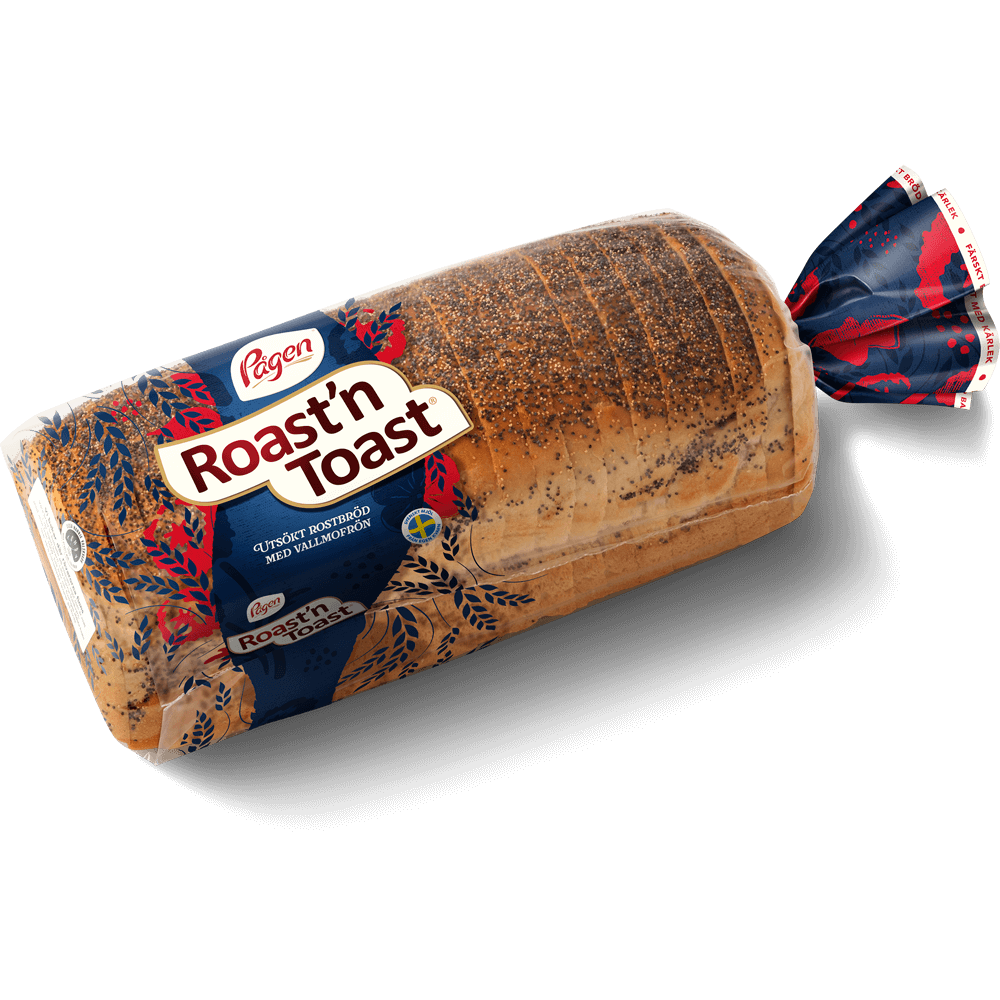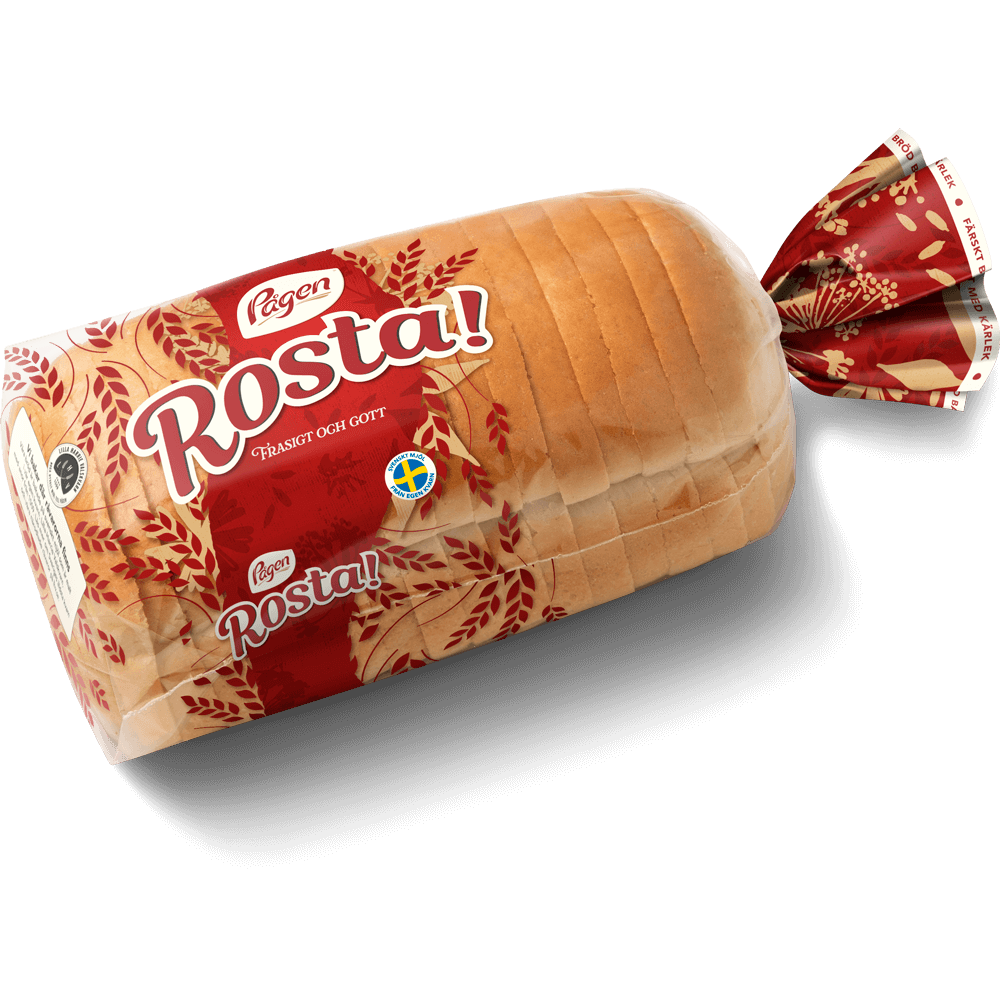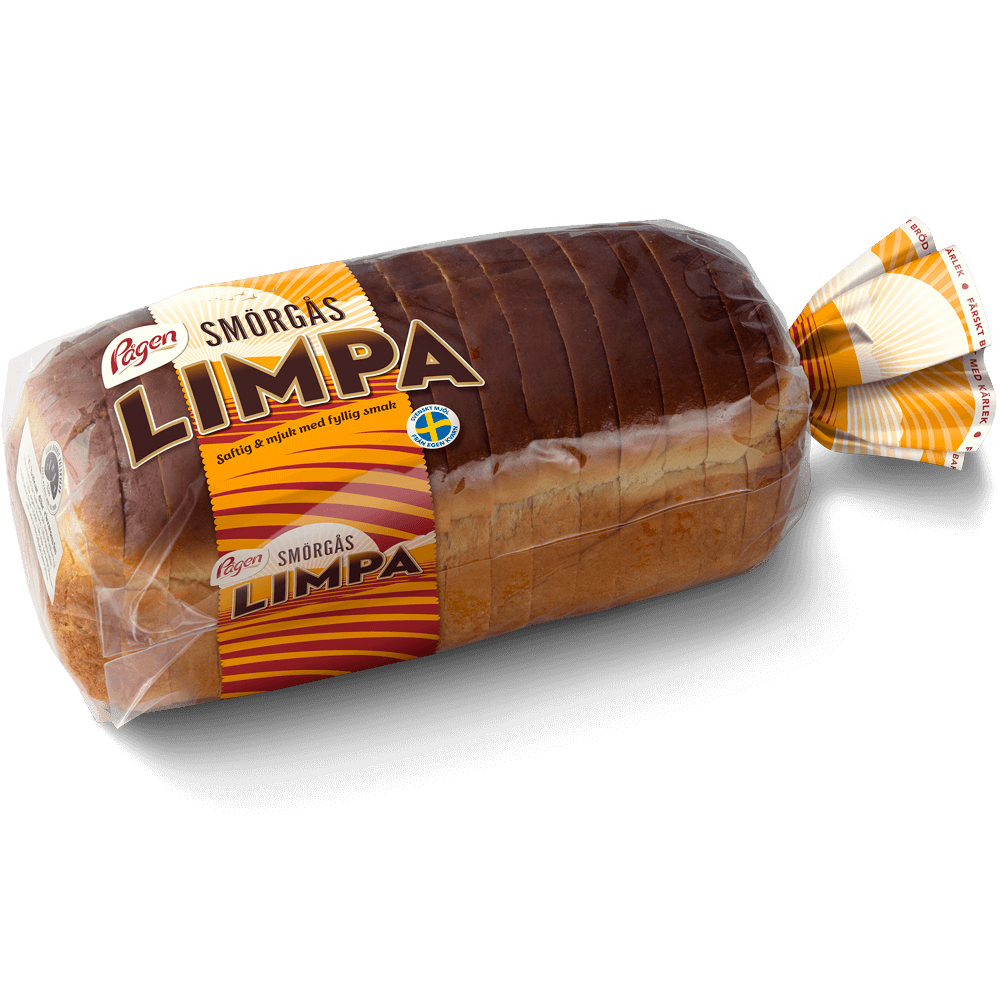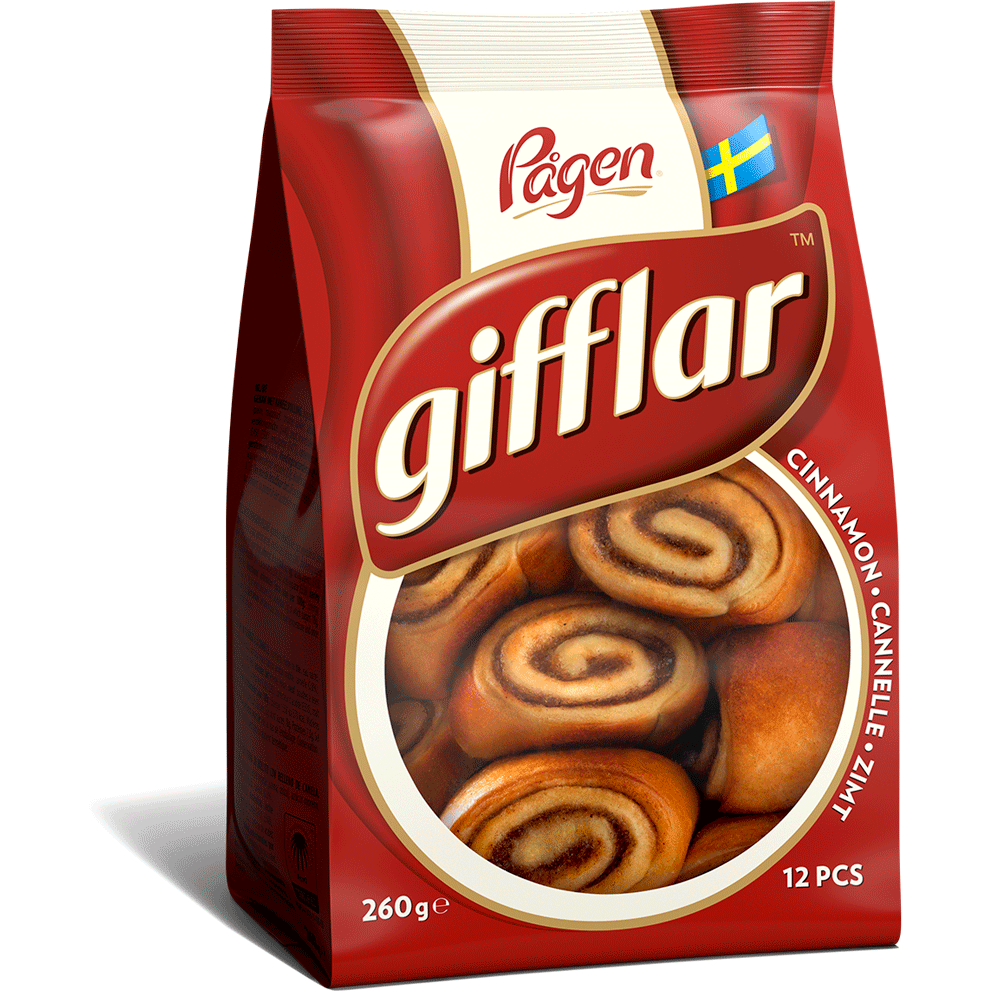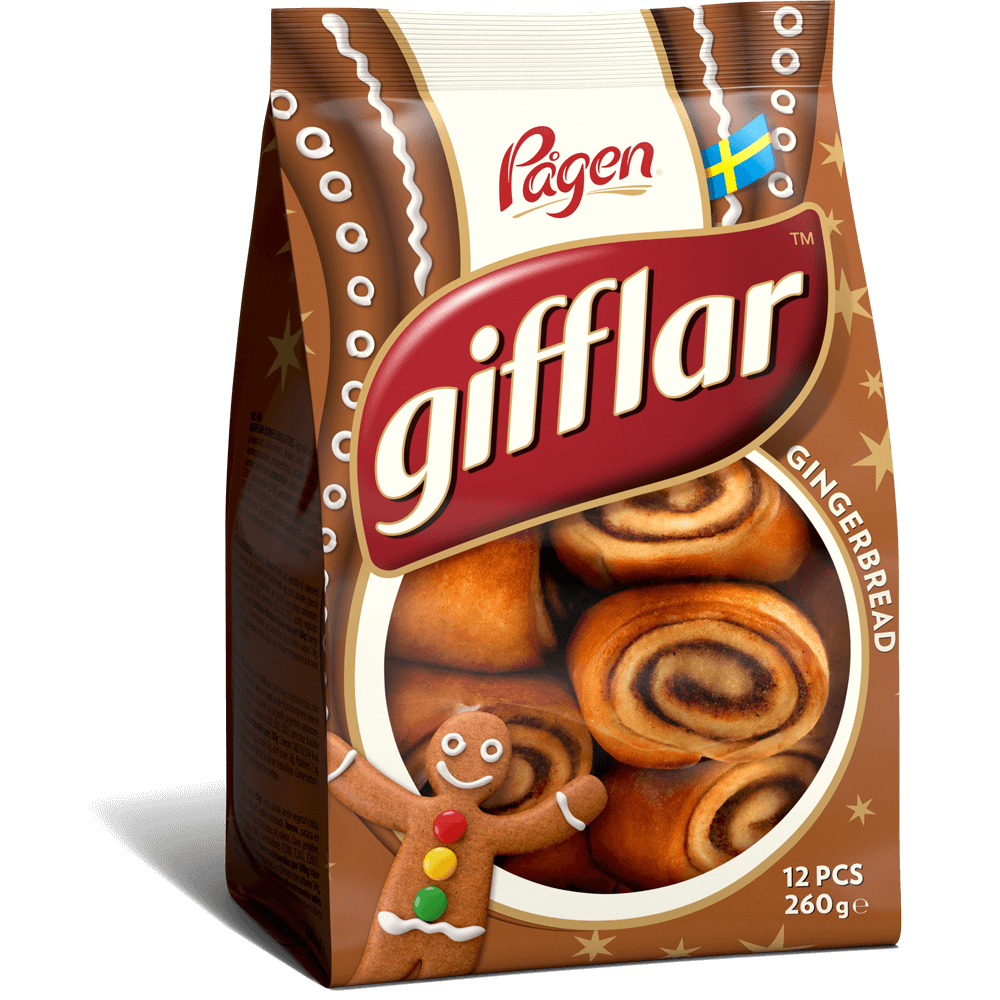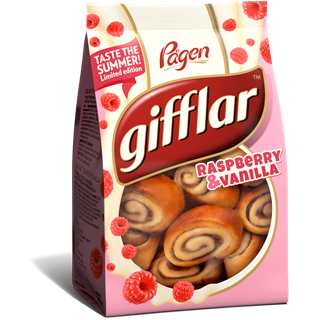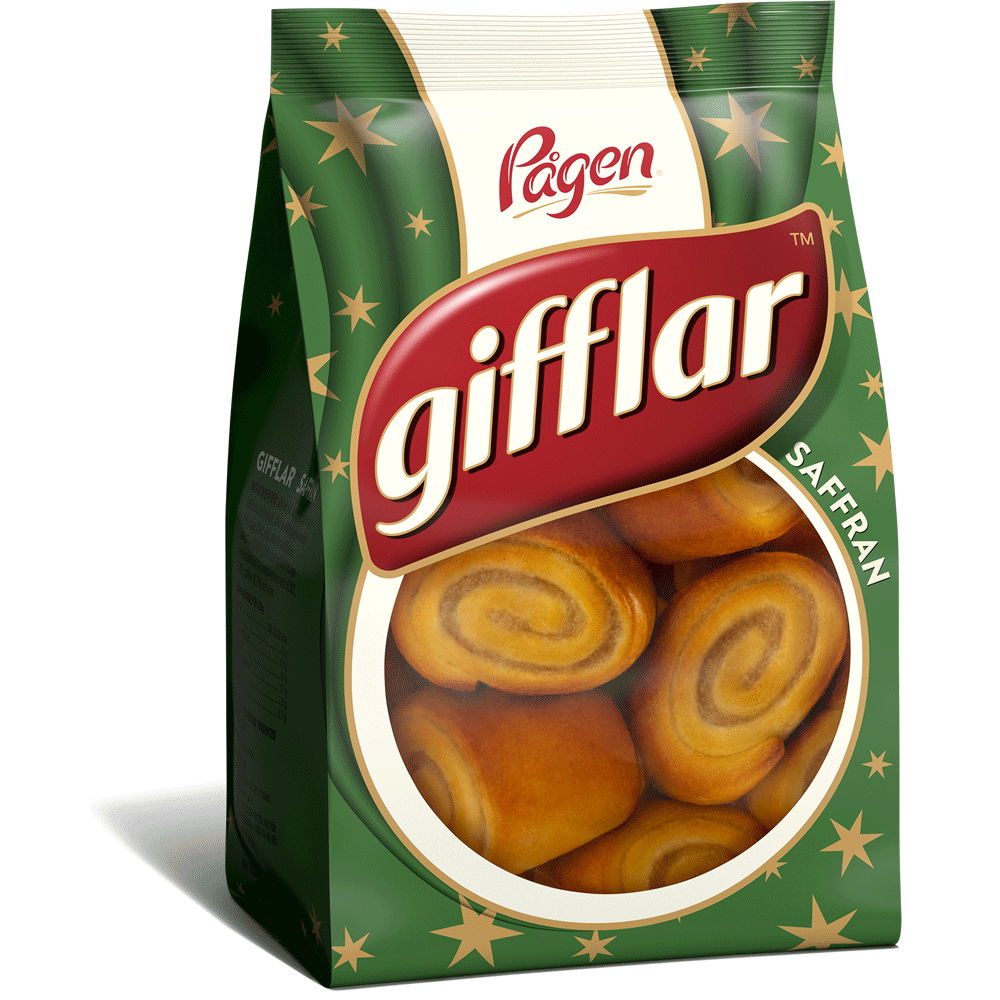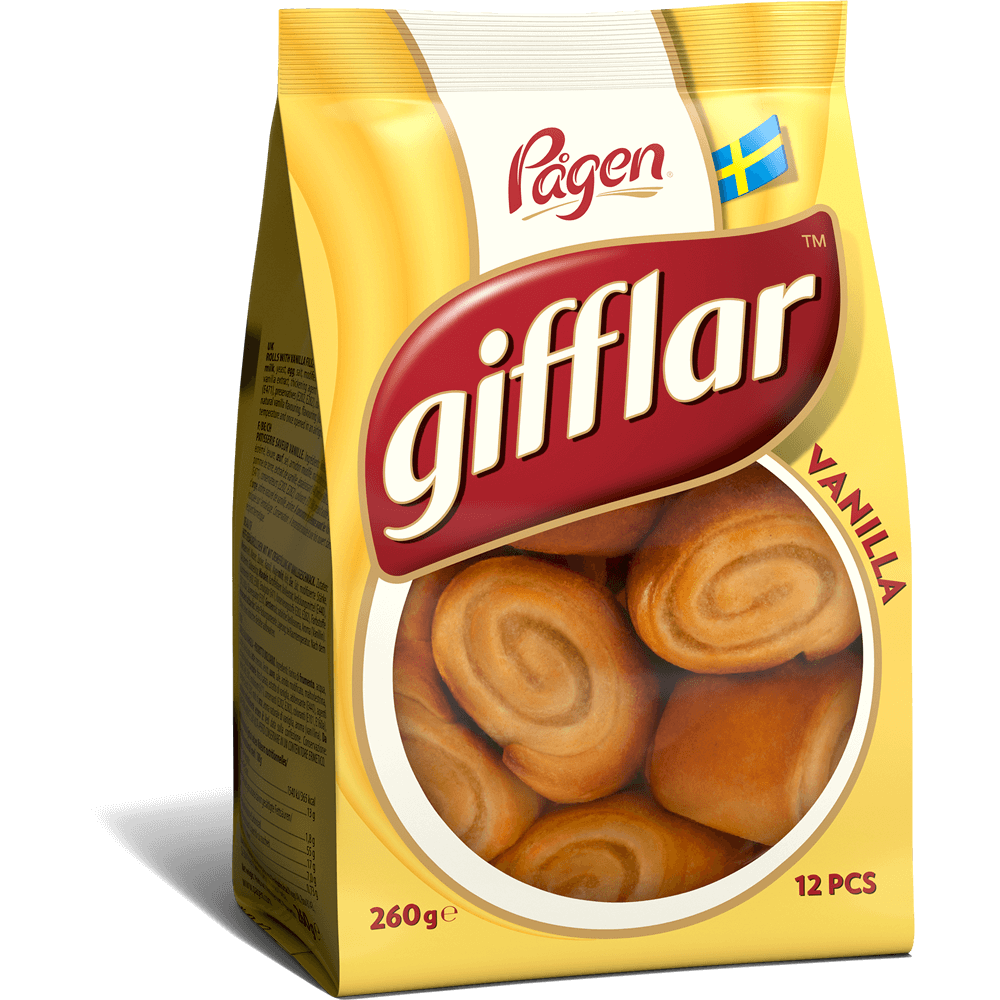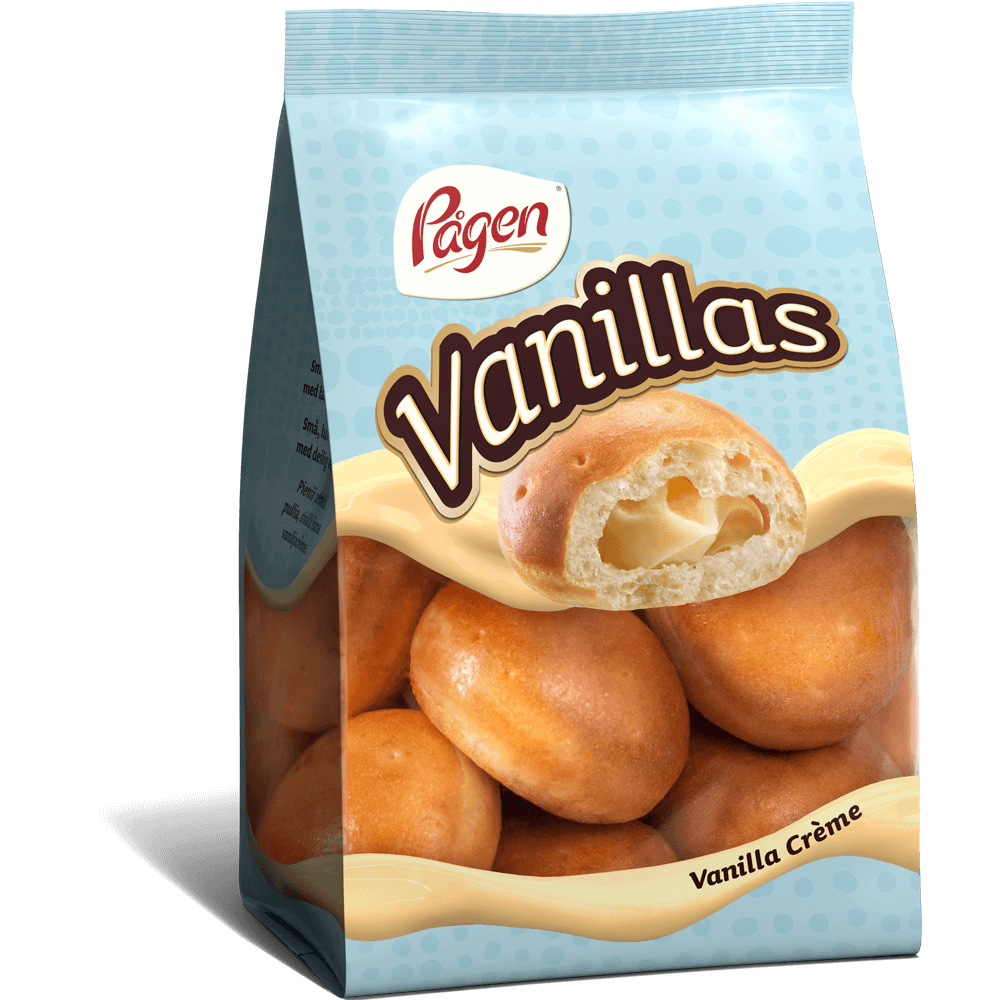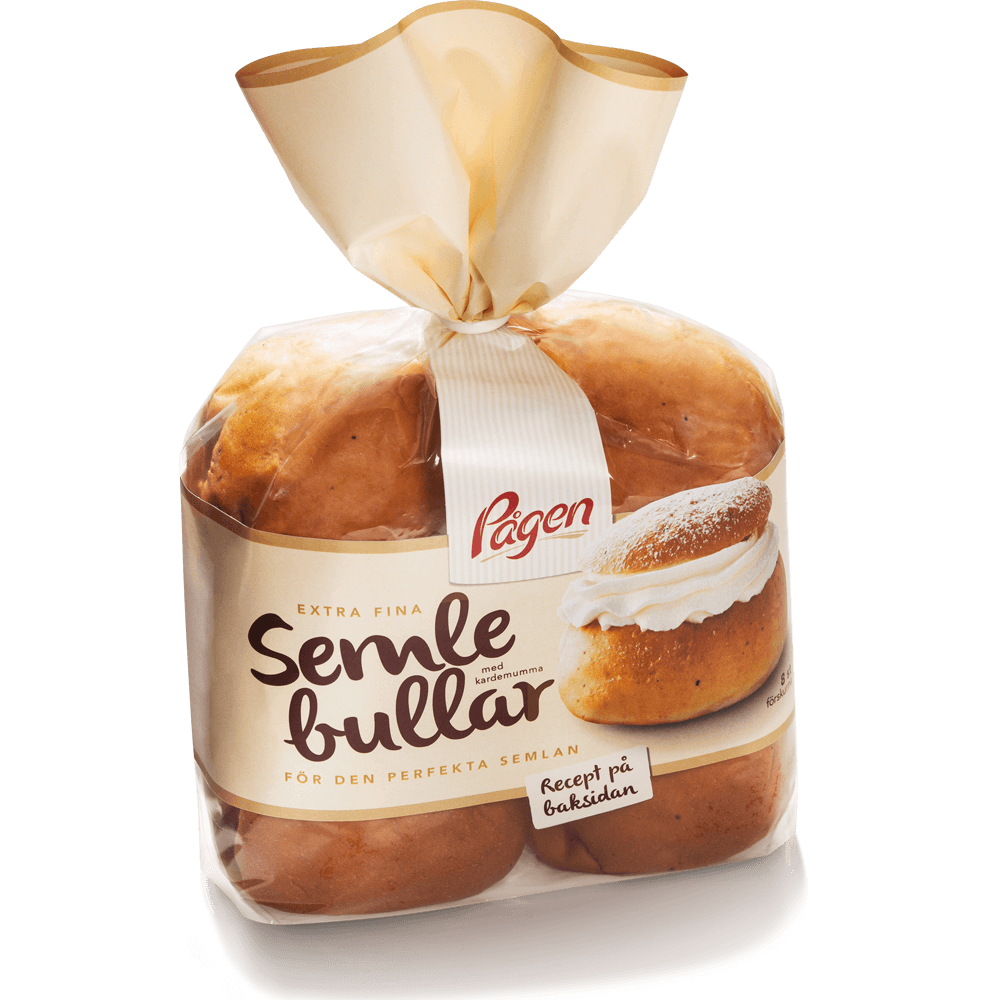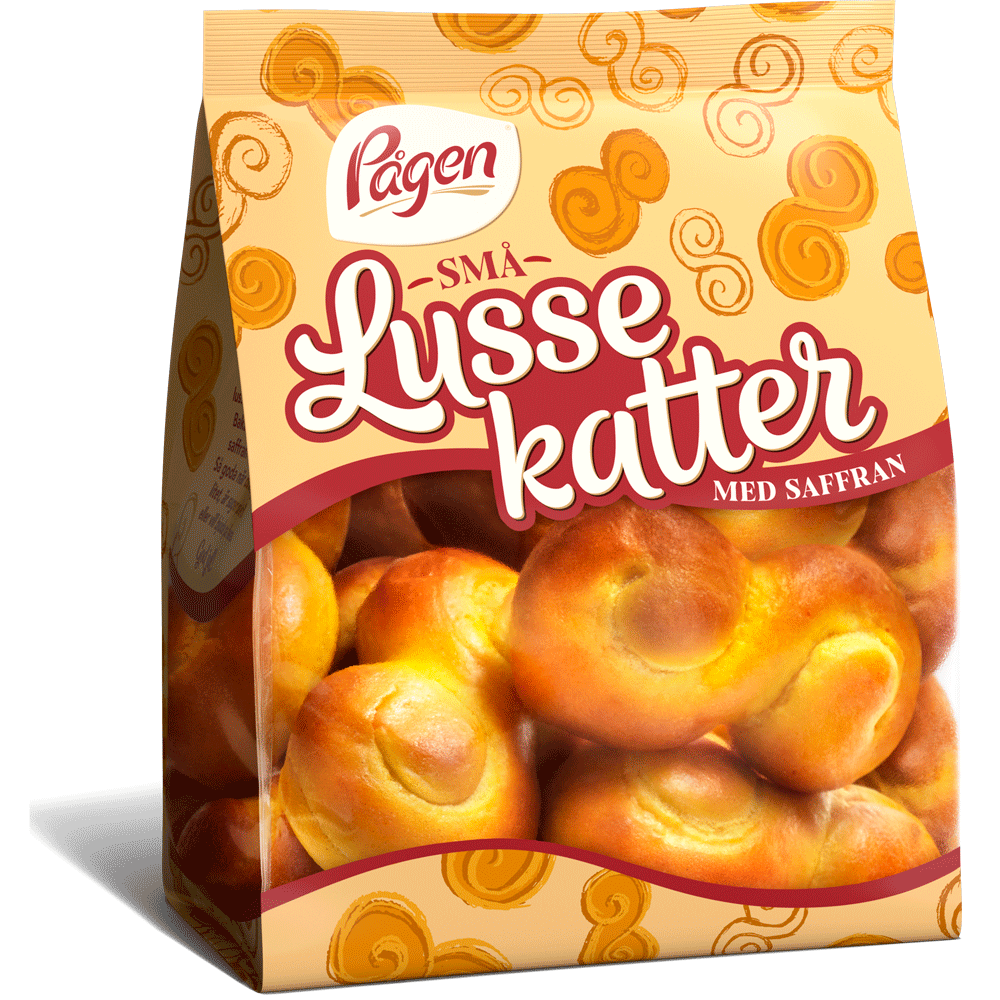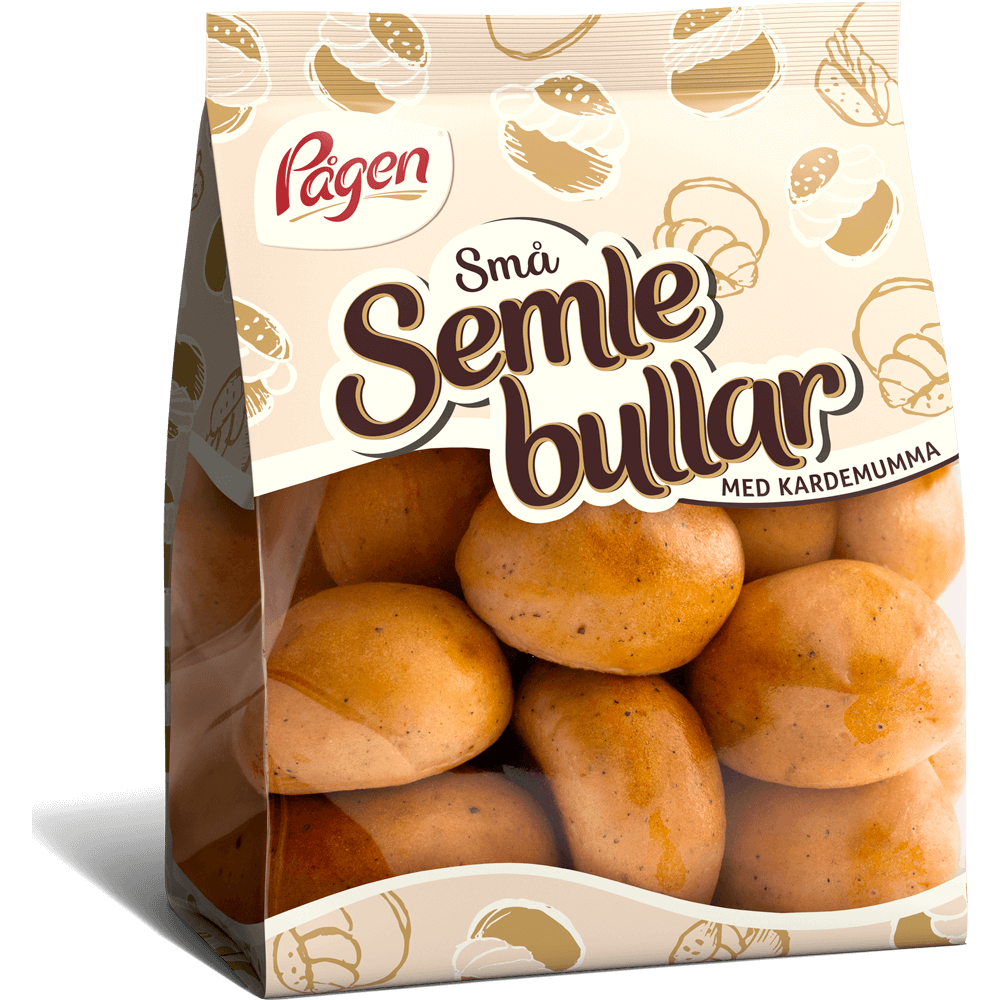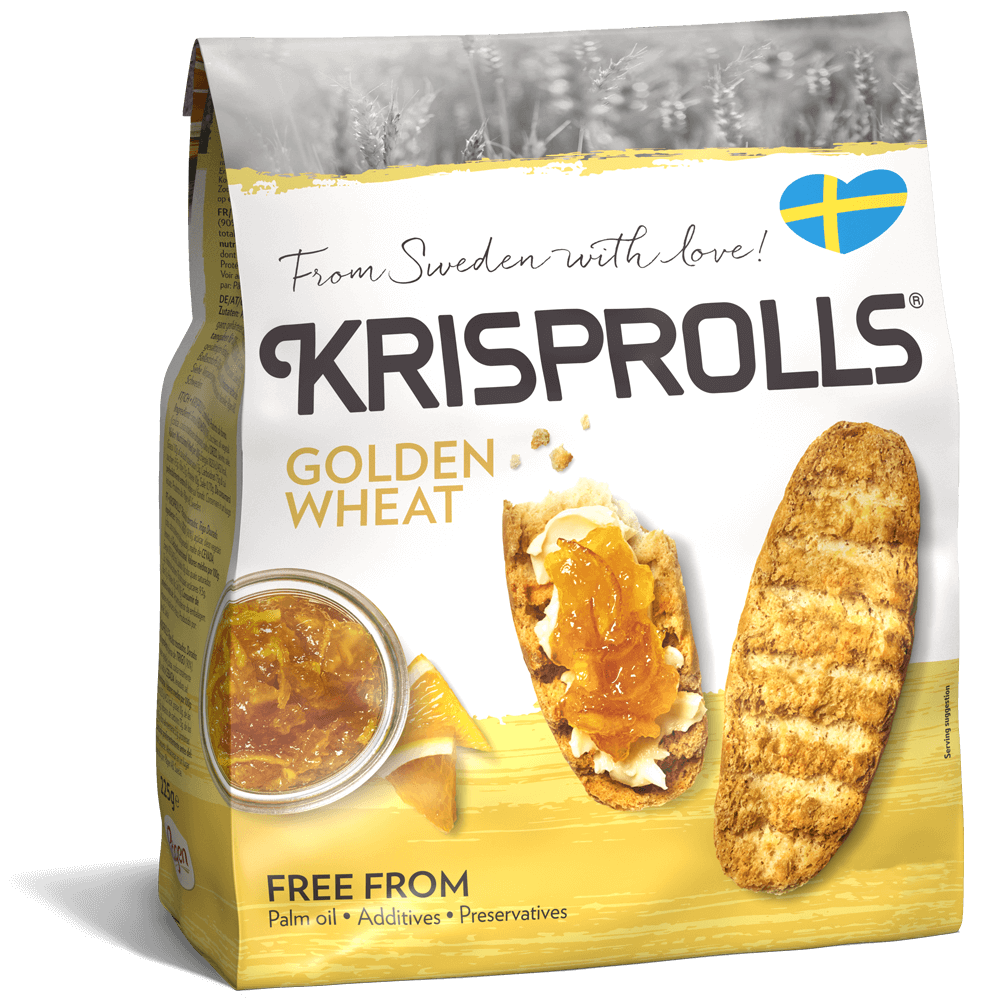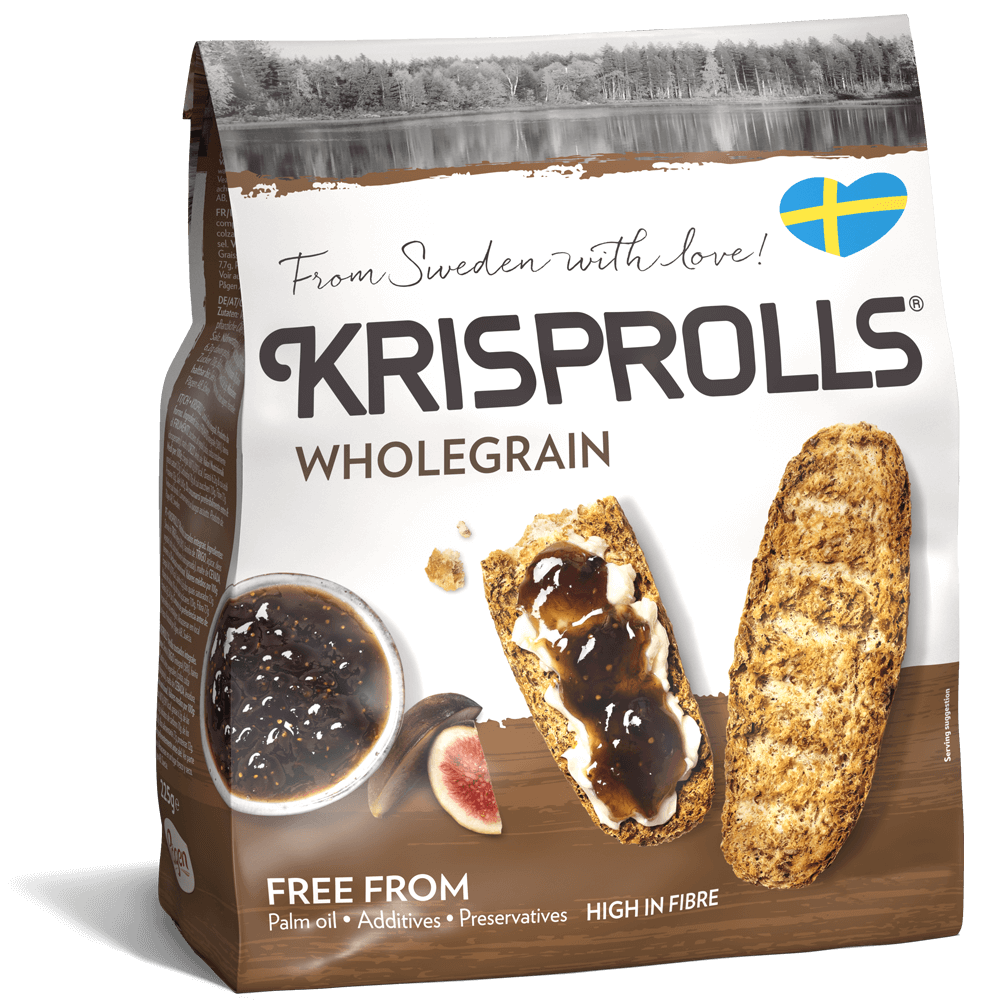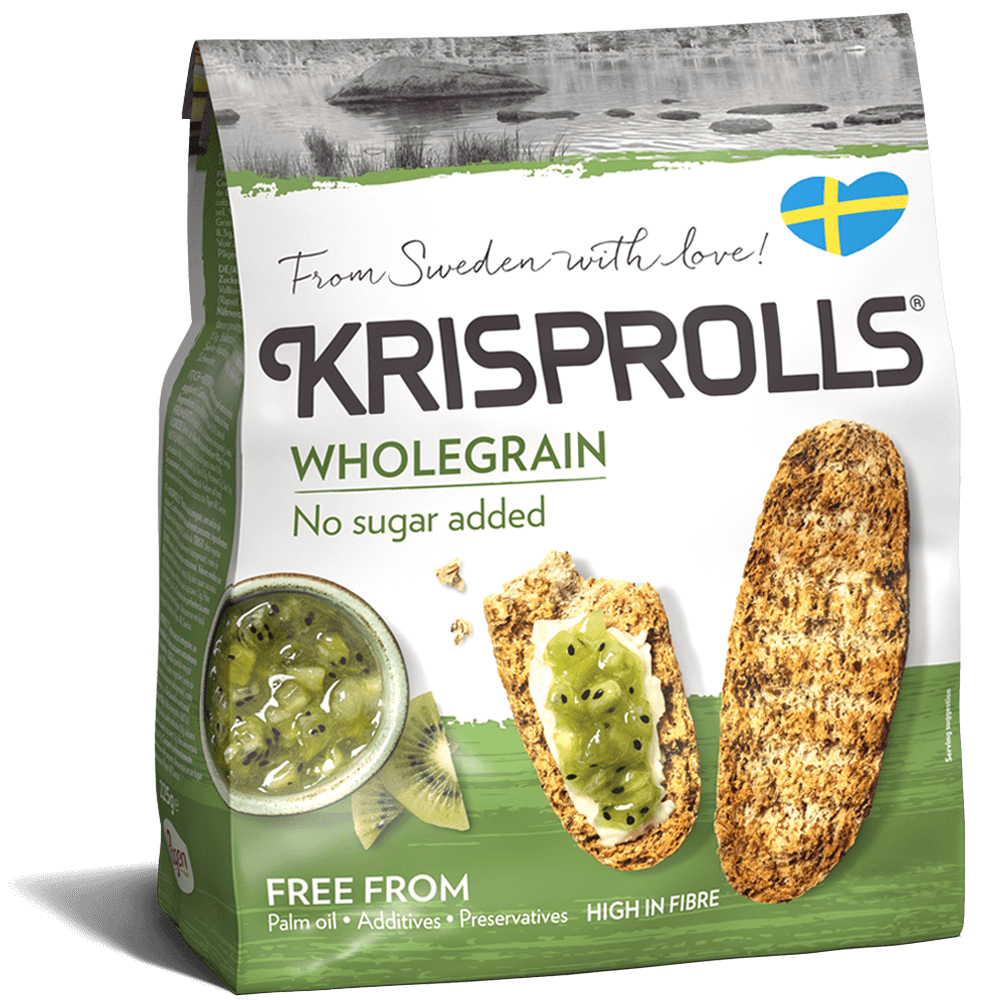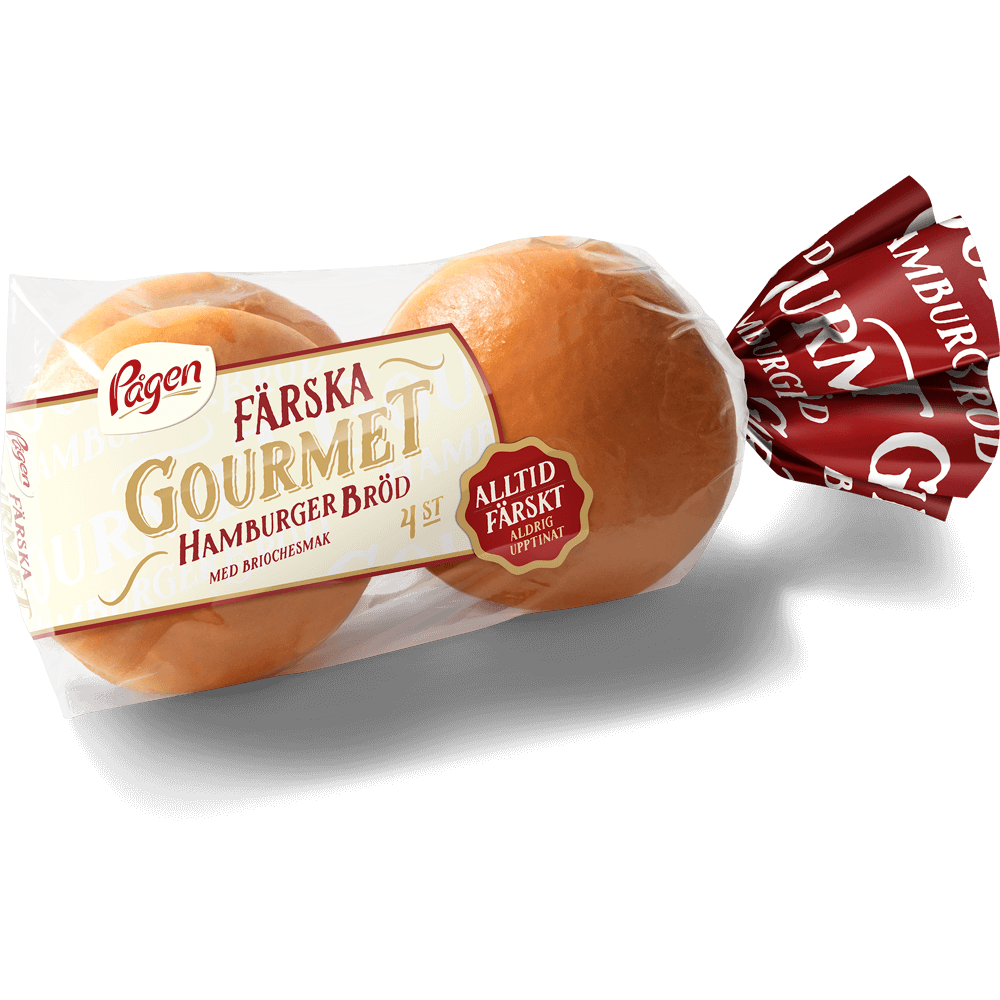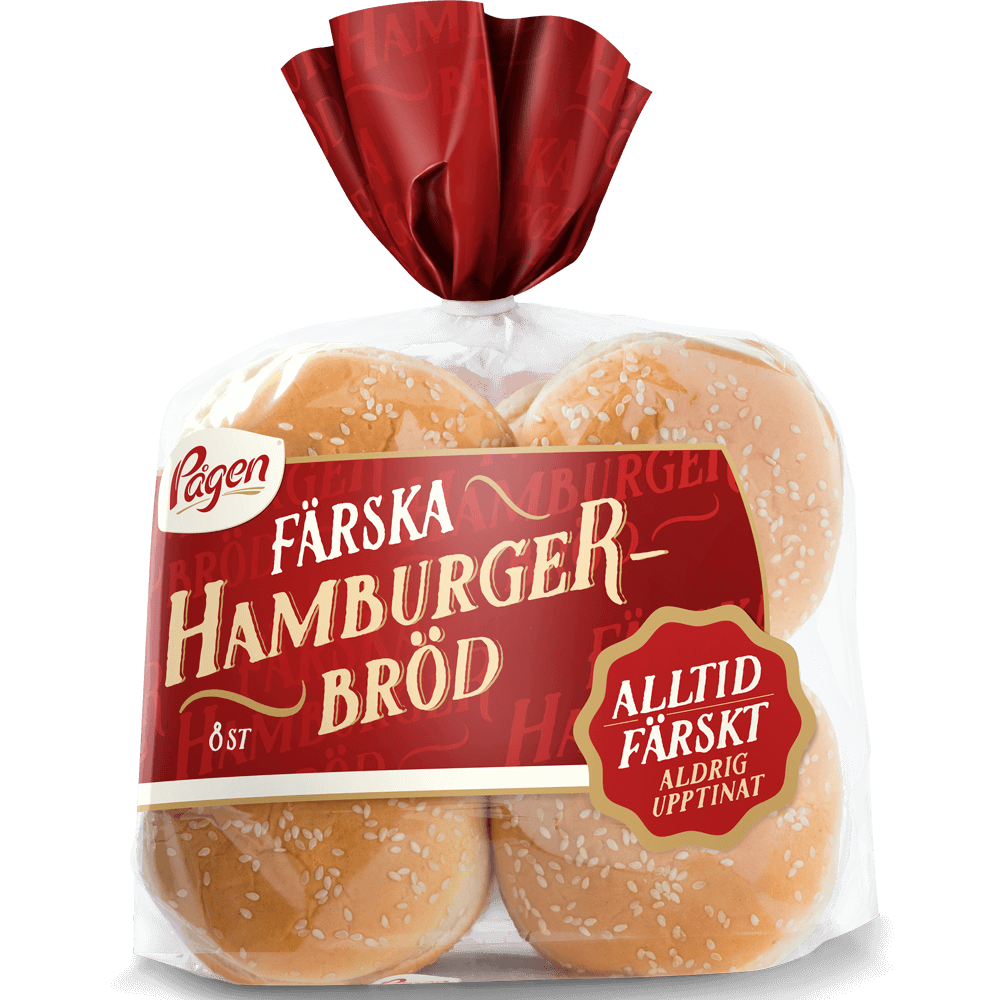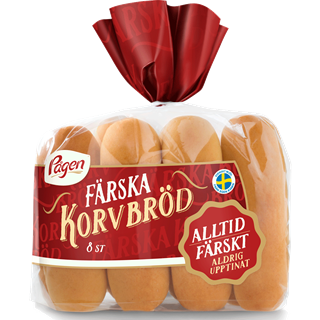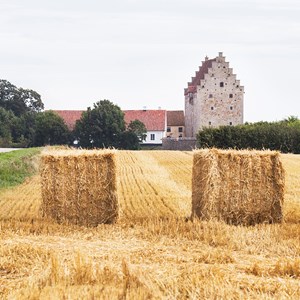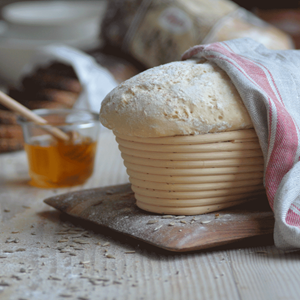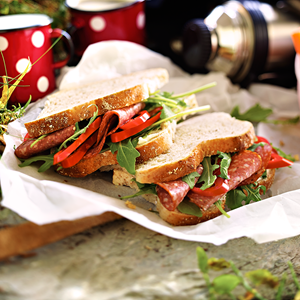Sustainability – now and in the future
As a family business, long-term thinking to make sure we are environmentally, socially and economically sustainable is natural for us. We want to continue baking bread for many generations to come and care about our common resources and the environment.
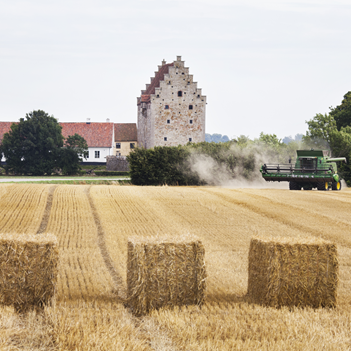
Our focus areas
Our priorities within sustainability are based on where we can make the biggest impact both now and in the future. We think this is more important than focusing on specific efforts. Our three most important areas are:
- To contribute to the development of a sustainable Swedish agriculture. We do this by choosing local flour grown according to tough requirements and actively participating in developing more sustainable cereals.
- To work in all parts of our product lifecycle to reduce food waste. Our main contribution is to offer fresh bread with a long shelf-life.
- To have a long-term view on our circular system and recycle as much of the left-over products as possible that, after all, arises.
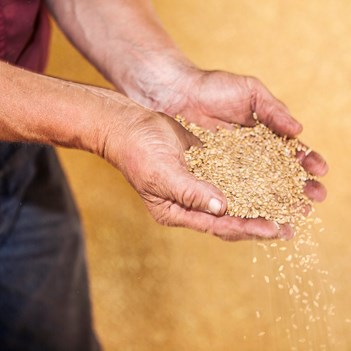
Sustainable and circular food system
Pågen’s aim is that the materials we use shall be sustainable and have as little environmental impact as possible. At the same time, we always strive to be economical and not use more resources than our business requires.
We use circular thinking where we constantly strive to minimize the amount of leftover products that cannot be reused or recycled.
Resource Efficiency
We work continuously to keep the amount of materials we consume to a minimum and do not use more than necessary to develop, bake and promote tasty fresh products. Regardless of what materials we use, they always require resources to produce and transport, and consuming less saves on the environment, time and money.
For example, we work actively to use less plastic in our packaging and to keep energy consumption to a minimum in our bakeries.
Sustainable options
Choosing sustainable raw materials is always a priority for our business, not least because the products’ carbon footprint mainly come from our ingredients. That is why Pågen prioritizes Swedish ingredients as far as possible and the flour we bake comes from our own mill – Swedish grain growing nearby and among the cleanest in EU.
Our bread offers a low carbon footprint and contains only vegetable ingredients. Our own sourdough is important for taste and quality and because it is a sustainable alternative. We use only renewable energy in our bakeries and our switch from natural gas to biogas has greatly reduced the part the bakery plays in the carbon footprint of our bread.
Reducing waste
One of the most important sustainability issues in the food industry is to reduce food waste. The vast majority of food waste comes from consumers, which is why we have a strong focus on offering fresh bread with a long shelf-life. We also work with inspiration and information to stop edible bread ending up being thrown away.
We work constantly to minimize the risk of waste in our bakeries and in the shops.
Reuse and recycle
Pågen works with fresh food and a certain amount of leftover product is inevitable. Therefore, it is important to have a cyclic mindset and take care of waste in a sustainable way. A good example of this is our method where we, through a closed system, recycle the leftover dough in the baking. Our salesmen take back unsold bread from the shops on their usual route. Together with waste from the bakery, we recycle everything to bioethanol or animal feed, and all our packaging is completely recyclable.
What we do to prevent food waste

Food waste is more than an ethical issue
Throwing away food that could be eaten means waste of our shared resources, but also a negative impact on the climate throughout the life cycle from cultivation to production and distribution - absolutely for nothing. To get an idea of the environmental impact of food waste, it is not enough just to measure how much it is in kilos. One must also take into account the climate imprint of the food.
The waste is often quite high for fresh foods such as bread, fruit & vegetables, meat and dairy products. Compared to many other foods, our bread have very low climate footprint, mainly because they are plant-based and baked with Swedish cereals that are ground in our own mill.
We have joined the The Swedish Food Federation's (Li) sustainability manifesto and are committed to halve food waste by 2030 in our own production and also contribute to reduced food waste in primary production, trade and consumer level. In addition, we have a strong focus on the sustainability work in our operations to be able to offer even more climate-smart bread.
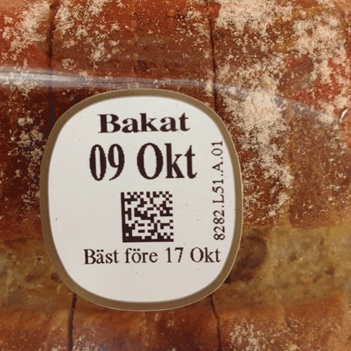
Fresh bread with long shelf-life
Much of the food waste takes place in the home and we want to help reduce unnecessary food waste. Our most important contribution is fresh bread with high quality and long freshness. Surveys show that bread is mainly thrown in the homes because they mold or feel dry.
To give you a long time to eat your bread, it is important that the bread is delivered to the stores as quickly as possible. That is why we bake at night and deliver to your shop in the morning.
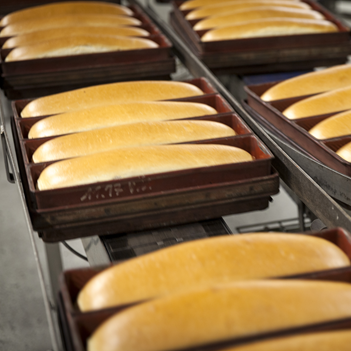
Low levels of food waste in the bakeries
In a bakery, a certain amount of spillage is inevitable. It can be edges that are removed or bread that happens to be baked wrong. Our breade waste are already at comparatively low levels today (about 2%) and we are working to reduce them even further.
When baking our portion breads, we get leftover dough when the portions are cut out. We have developed a smart system where the leftover dough are reused and become new dough in a circular flow on the line.
We plan the baking so that we bake as long series as possible. The effects are that we reduce the risk of creating unnecessary waste and reduce the risk of wrong baking due to the oven setting.
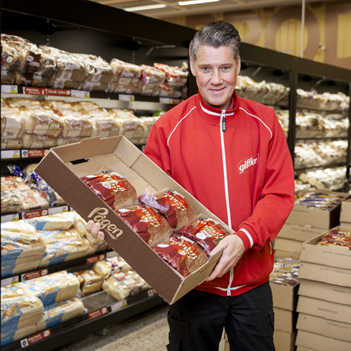
Focus on sustainable bread shelfs
The fresher the bread shelf, the less waste is created, both in homes and in the stores. At home, a fresh bread means that you have more days to eat the bread before it gets dry and needs to be thrown away. In the store, a fresh bread shelf contributes to fewer breads being unsold, as the likelihood that they are bought decreases for each day that goes after the day they are baked. Therefore, our most important contribution to reduce food is fresh bread with long shelf-life.
However, as for other fresh food categories, there will always be a certain food waste in the store and we work hard to get as little unsold bread as possible. For example, our salesmen are measured on how small a proportion of return bread they get from a store.
We make sure to constantly improve the planning of store deliveries. For example, consumers demand different types of bread on different weekdays. It is also important that the bread shelf consists of an attractive assortment and that products that sell poorly are removed from the range. In order to reduce waste, it is important to find a balance between consumers being able to find their favorite bread on the shelf, regardless of when you shop, and that there is as little bread waste as possible.
The bread that, after all, is not sold our salesmen take back when they deliver fresh bread to the store - without driving any extra miles. These become part of a sustainable cycle and are recycled to 100%.
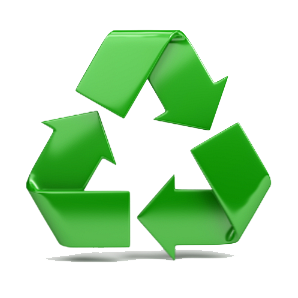
All bread waste is recycled
As a producer of fresh foods, it is extra important to both work to minimize food waste and also have a system for recycling - and this is something we have worked with for a long time.
Old bread that is not sold in the shops our salesmen take. Together with bread and dough waste from the bakeries, we recycle 100%. Some of the waste become animal feed through cooperation with local farmers. The remaining waste goes to production of bioethanol and becomes renewable fuel. We also donate leftover bread to local charities.
Our overall goal is a circular system where all bread waste are taken care of as sustainably as possible, that is, with as little negative environmental impact as possible. Therefore, we also work long term to find new recycling solutions.
Other important sustainability areas
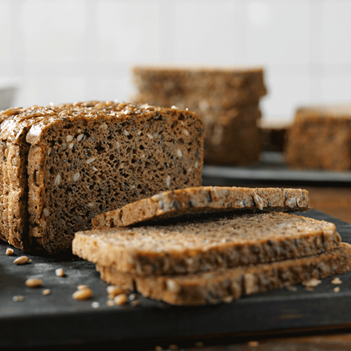
Climate-smart and healthy products
The food we eat accounts for a large part of our climate emissions. Many people want to choose food that gives a small ecological impact and changes their diet, eg. eat less meat. Then bread is one of the best things to eat, as it is one of our most climate-smart foods.
Another major challenge in the world is to prevent major public health diseases. Bread contains several of the nutrients we need and many of them also whole grains, which are important for preventing several common diseases.
PLANT BASED
Few foods have as low climate footprint as bread, which is about the same levels as pasta and legumes. The reason why bread is such a climate-smart food is above all that it contains vegetable ingredients. It is basically only root vegetables that have lower climate footprint.
SWEDISH INGREDIENTS
Our bread is mainly baked with Swedish flour from our own mill, which contributes strongly to the bread's low climate footprint. Grain is a crop that provides a lot of food per cultivated area and Swedish farming are among the most environmentally friendly in the world.
In addition, it takes little energy and water to bake bread and the waste is small in both mills and bakeries. Transport, which is often believed to account for a large proportion of the impact, accounts for only 6% of the total climate footprint of bread.
BREAD A SOURCE OF MANY NUTRITIONs
If you want to eat climate smart, it is good to choose protein from plant based food. Our bread contain around 10% protein and become a climate smart and nutritious meal together with good toppings. Eating bread with every meal is an easy way to fill up energy, dietary fiber, protein, vitamins and minerals.
Half of our breads contain more than 25% whole grains which have several positive health aspects and about a third of our bread are keyhole labeled, a label that is used to help you make healthy food choices.
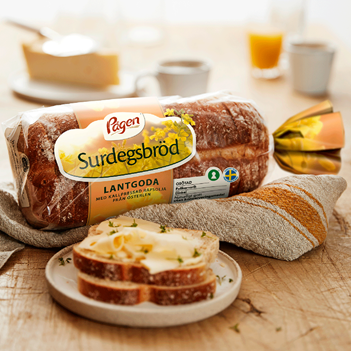
High demands on raw materials and ingredients
Pågen has a long-term vision of being involved in the development of commercial and sustainable agriculture in Sweden. We do this by prioritizing Swedish ingredients, and by our joint development work with farmers. Ingredients grown in Sweden have a low environmental impact, mainly due to resourceefficient cultivation and high environmental requirements.
We are testing and developing Swedish sustainable cereal varieties with improved baking properties such as durum, spelt, high protein wheat and light whole wheat. Pågen places high demands on our suppliers of cereals and for example we don't allow sludge fertilization or wheat treated with straw shortening agents.
Pågen has a close and long-term cooperation with a few selected suppliers, which means we can be confident that they are well aware of our requirements. We can also ensure that the raw materials are produced in a sustainable way which we can follow up by a continous dialogue and controls. As we develop new products we carefully evaluate new ingredients and their origin.
We bake all our bread without preservatives and genetically modified ingredients, and we generally restrict the use of additives.
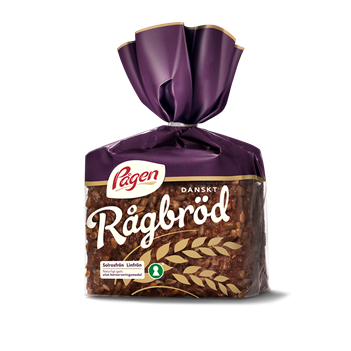
Recyclable packaging
The longer shelf life bread has, the less risk there is of it being thrown away in homes. Breadpackaging plays an important part by protecting bread so that it lasts for a long time and does not go stale, causing unnecessary food waste.
All packaging we use is completely recyclable and part of part of a circular flow. Plastic bags account for only 2-5% of our products’ carbon footprint.
We work actively to find packaging solutions that have as little environmental impact as possible. We always evaluate new solutions from a holistic perspective and from a number of sustainability aspects, including:
- Quality, so that the material does not reduce the time bread keeps and create increased food waste.
- The environmental impact of the raw material, that it is energy efficient and sustainably produced, including being sustainable regarding social and ethical issues.
- What happens after the bag has fulfilled its function. That it decomposes or becomes part of a circular flow through recycling.
Recycling
Regardless of which plastic you use, it is important that it can be recycled as there are currently no plastic alternatives that are completely decomposable. All Pågen’s bread bags are already recyclable. Some of the bags are recycled into new material, while the rest goes to energy recovery.
Going forward we hope to recycle more into new material. In the future, we will certainly see bread bags made of recycled plastic, but today European legislation does not allow recycled plastic to be used in direct contact with food. The reason for this is that the recycling process is not closed and controlled, and there is a risk that harmful, non-permitted substances will be included in the recycled plastic.
Reduced consumption
Our goal is to continuously reduce the use of plastic. In recent years we have optimized the strength, format and thickness of our bread bags and switched to thinner materials in the stretch film we use around pallets during loading.
Renewable and decomposable biomaterials
We are constantly evaluating new packaging materials and our goal is to use renewable and decomposable biomaterials. Fossil-free plastics can for example be made from sugar cane or corn which gives a smaller carbon
footprint.
We believe that the alternatives available today are not sufficiently developed and durable from a holistic perspective – existing renewable biomaterials contain a certain amount of traditional plastic, which means they cannot be decomposed without creating microplastics in nature.
The plastic that is sometimes called decomposable is not yet sufficiently developed to be completely decomposed at normal temperatures in nature.
Pågen actively participates in development work on new packaging solutions and we have joined DLF’s* plastic initiative 2025, with the goal that the plastic packaging of member companies should be able to be used as
packaging material by 2025.
*) DLF Sweden is a trade association for companies that produce or import goods for resale to the grocery retail and foodservice markets in Sweden.
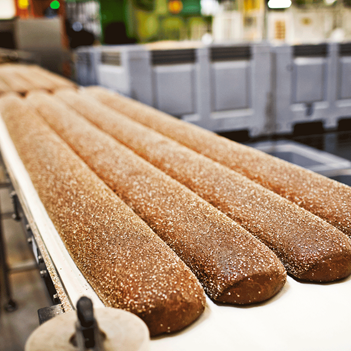
How we work with sustainability in the bakeries
We always have food safety in focus in our bakeries and our products quality is continuously monitored - when the dough is ready, after baking in the oven and during packaging. Both our bakeries are certified according to FSSC22000 and have very high hygiene requirements, which mean that our products have a long shelf life and we can reduce the risk of unnecessary food waste in the homes.
The local environment
Producing food where people live should be something natural. We work actively to minimize noise and emissions to water and air. We also collaborate with other local players in various projects to create sustainable solutions that allow us to cooperate in the local environment.
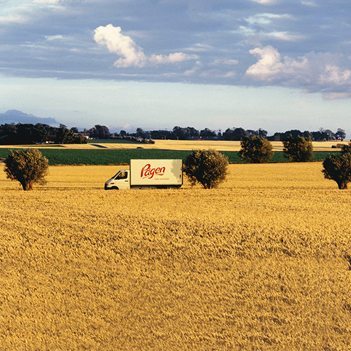
Efficient delivery
Transport accounts for a small proportion of the entire climate impact of bread, about 6%. Our aim is to manage our distribution as climate-smart as possible for example by planning for the minimum number of kilometers our vehicles drive.
We are working to increase the use of renewable fuel and have joined the Swedish Food Federation’s sustainability manifesto and are committed to working towards fossil-free fuels for our transport by 2030. Access to renewable and sustainable alternatives is limited, which is why we work in parallel with new solutions in biogas, electricity and hydrogen.
We also reduce transport emissions by switching to newer, more fuel-efficient vehicles or fewer and more efficient trucks. Our salespeople are regulary trained in eco-driving and in efficient planning of vehicle loading.
Our model where we take back unsold bread for recycling works without adding to transport lengths, as our salespeople are in the store every day and can return bread to the bakery or the loading place on their usual round.
Pågen has a collaboration with Sweden’s Haulage Company Association regarding Fair Transport for all purchased domestic transport and transport to Denmark and Norway. Fair Transport is an initiative that involves highlighting transport from responsible haulers who drive safely, think in a climate smart way and offer good working conditions.
We use train transport to France, our largest market for Krisprolls. Krisprolls have longer shelf life and are well suited for train transport.
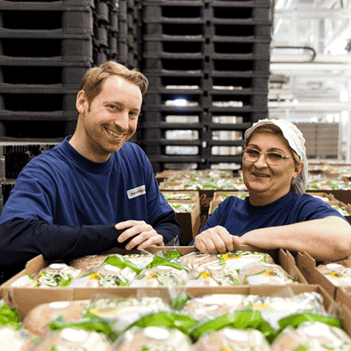
A good working environment
A good working environment where our co-workers feel good and happy is a prerequisite for us to continue baking bread for future generations. All decisions we make, how we act in everyday life and develop Pågen, are based on our shared values and our code of conduct.
Our common values are the basis for everything we do and we work with commitment, courage, responsibility and togetherness. Pågen has a zero-tolerance policy against all forms of discrimination, victimization, harassment, threats or violence in our business. We always consider diversity when recruiting, as well as competence based on the needs of the business.
Pågen works actively to counteract work-related ill health and injuries. We also work closely with the occupational health services, which have the opportunity to visit the workplace to help solve any possible problems.
To feel good it is important to be active and do things together, which is why we invest in health-promoting efforts and has a generous wellness contribution for co-workers.
